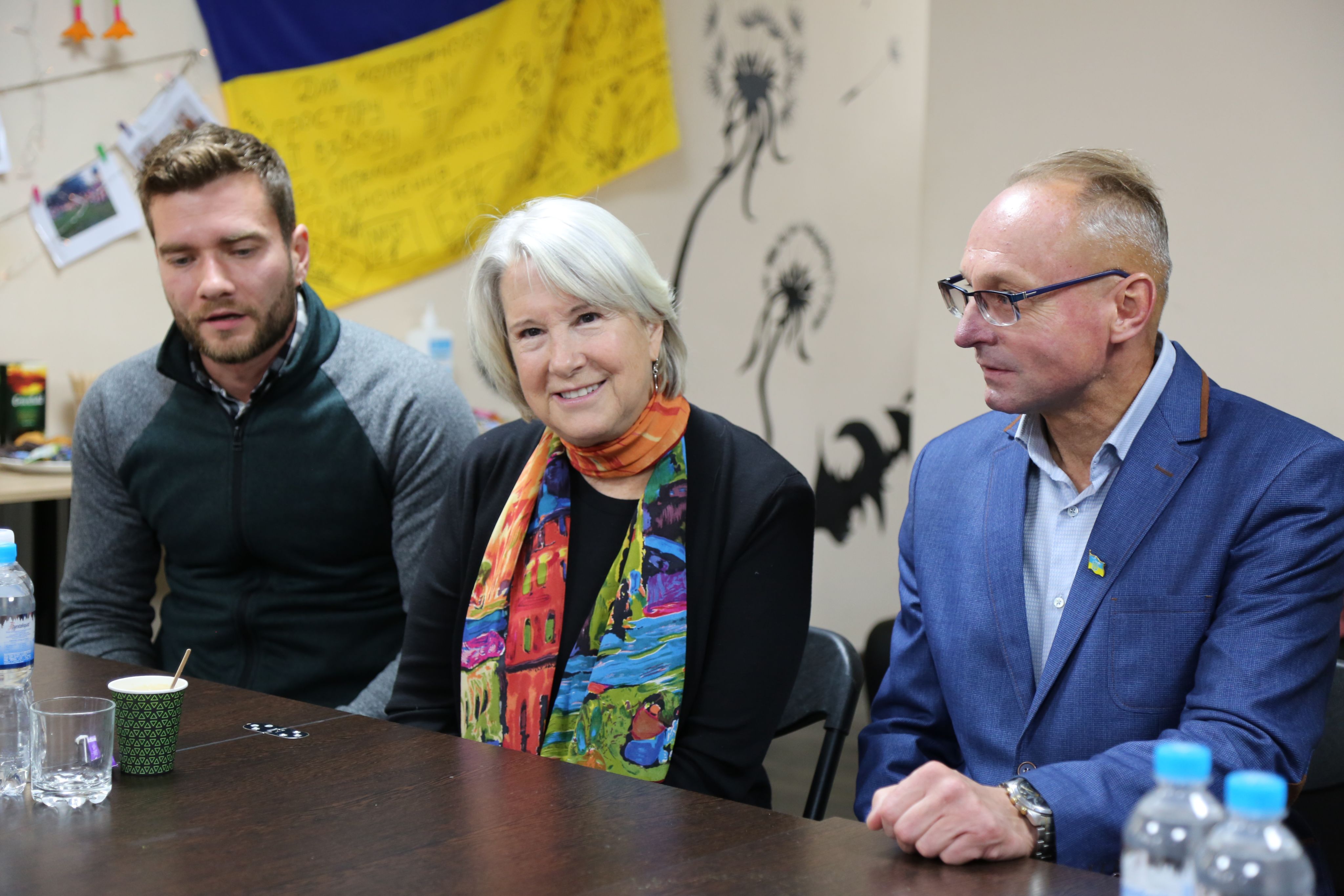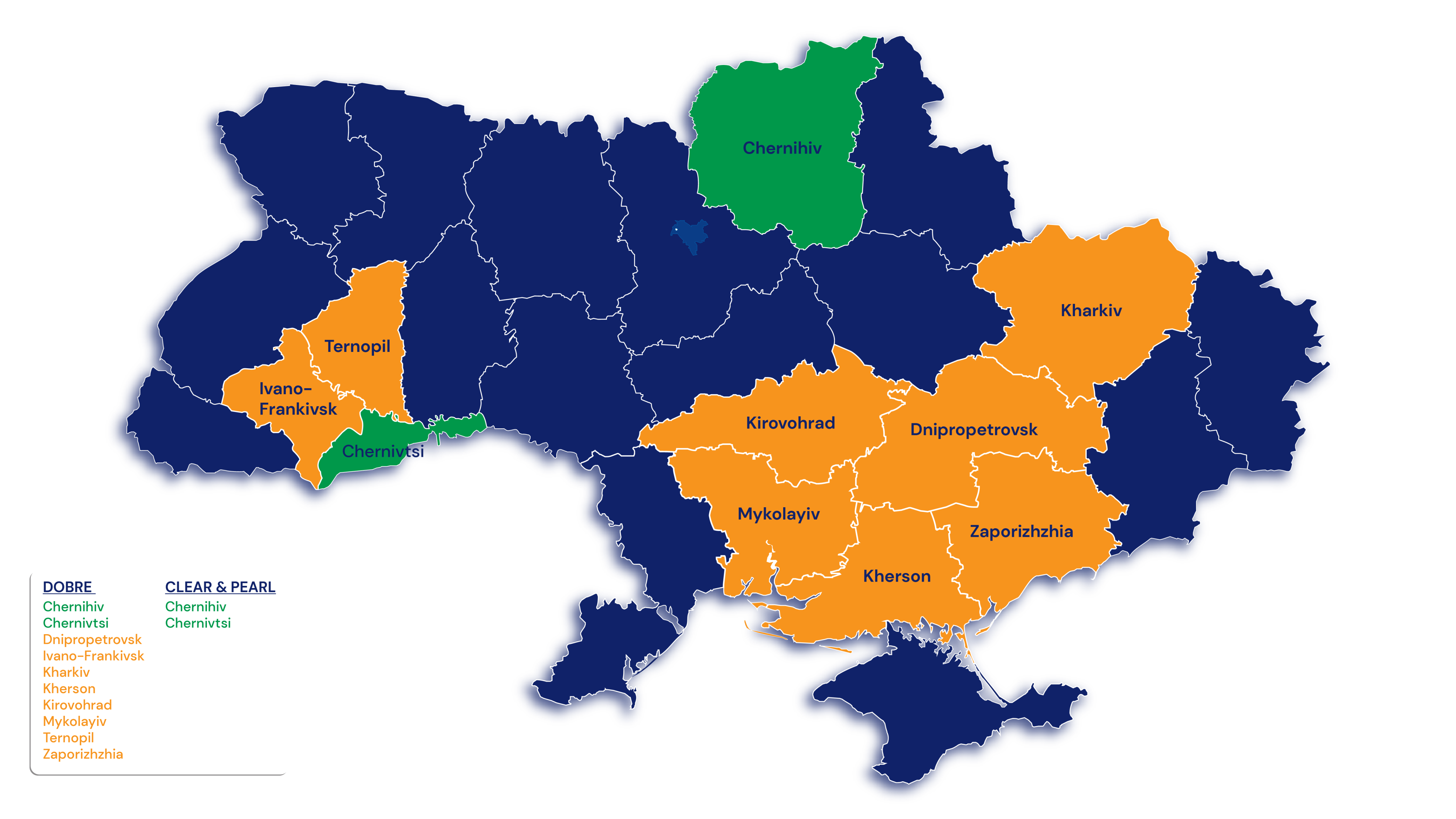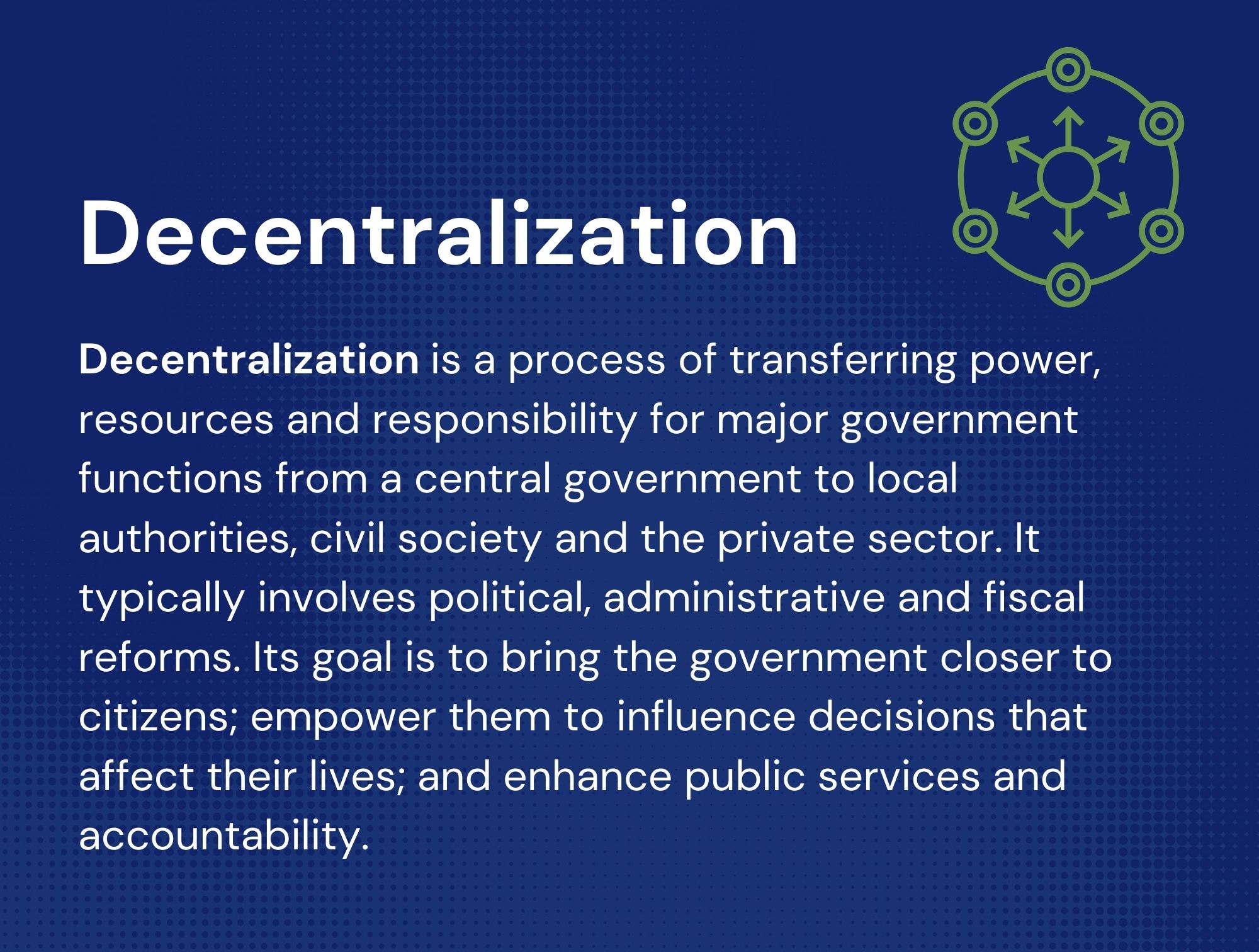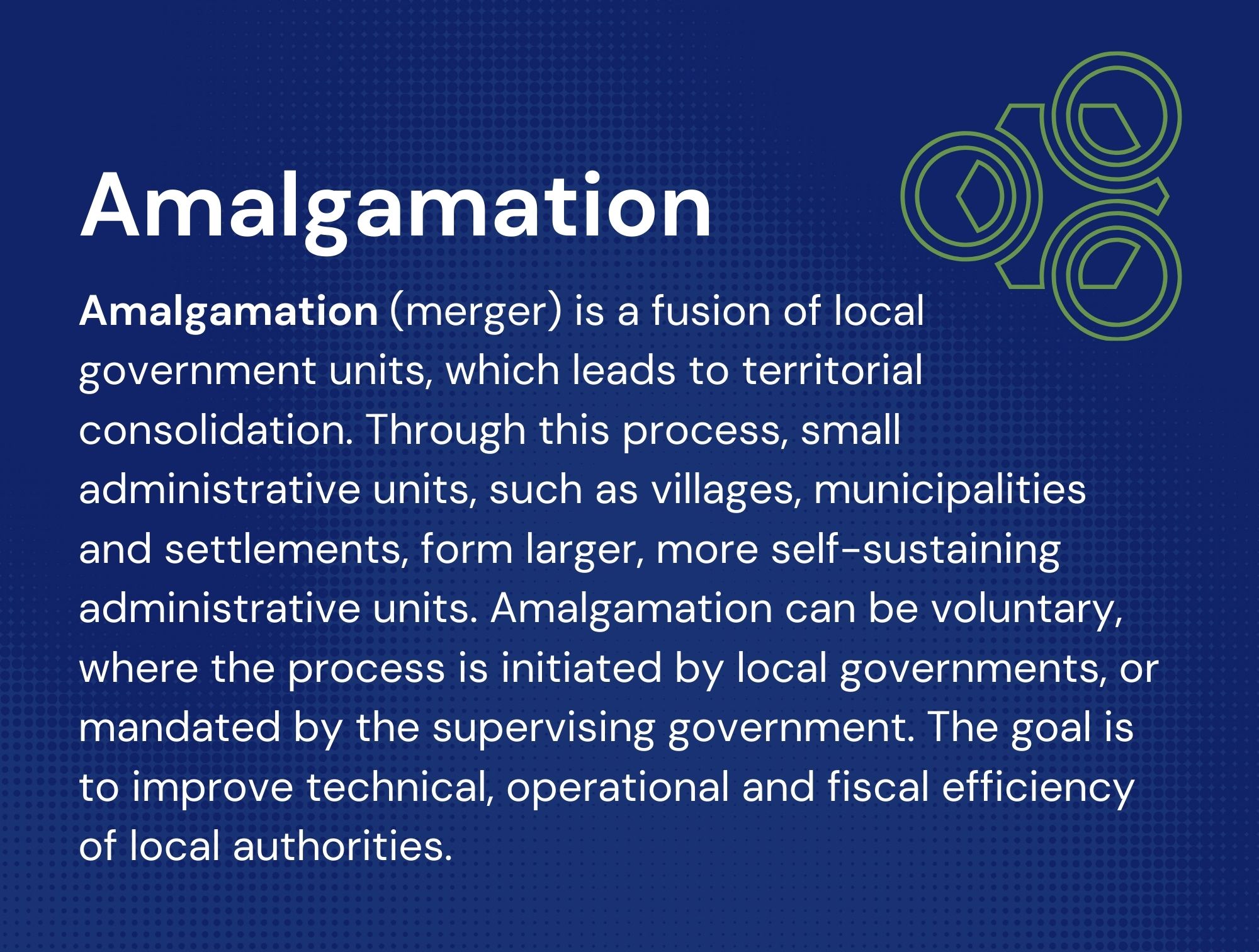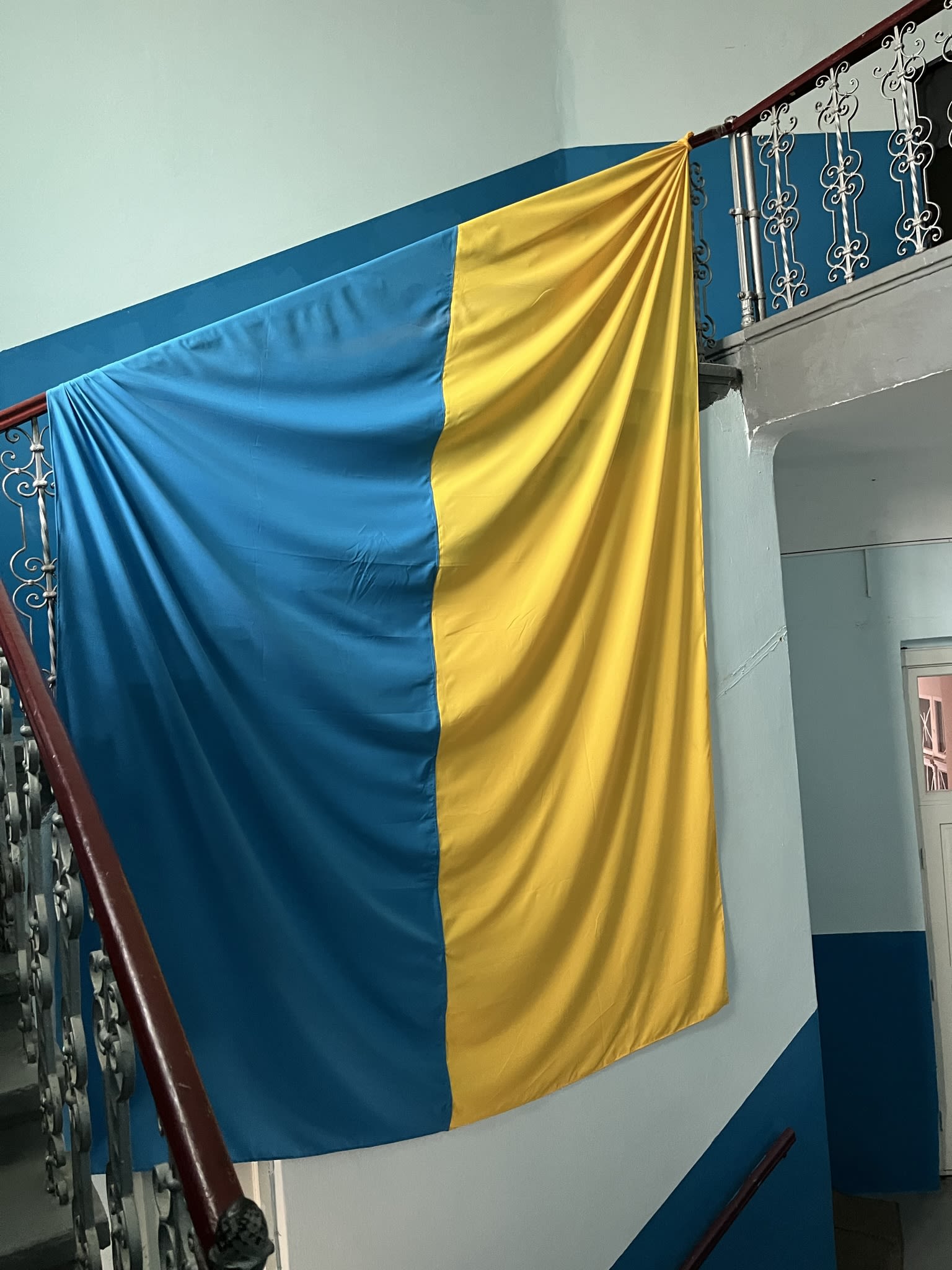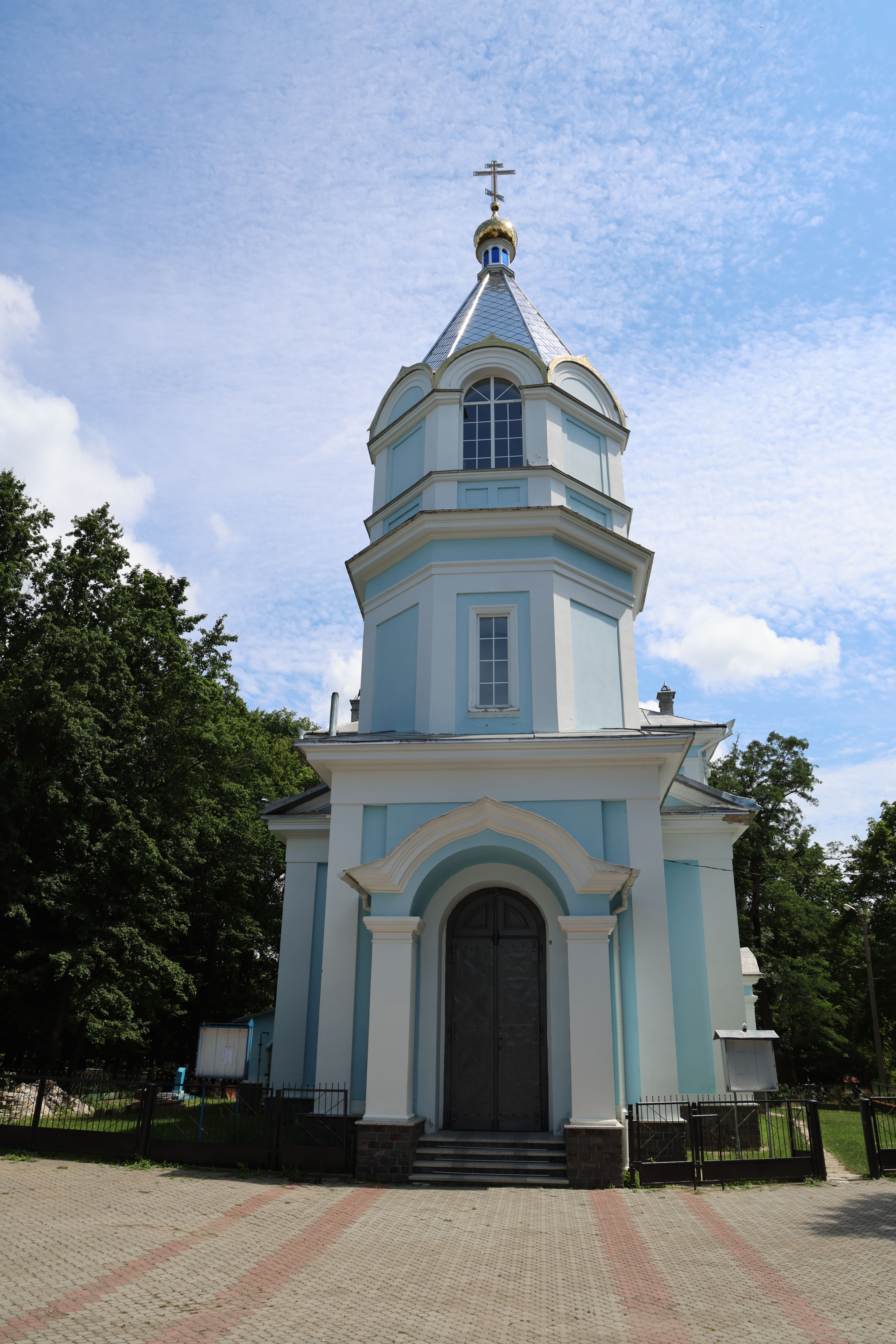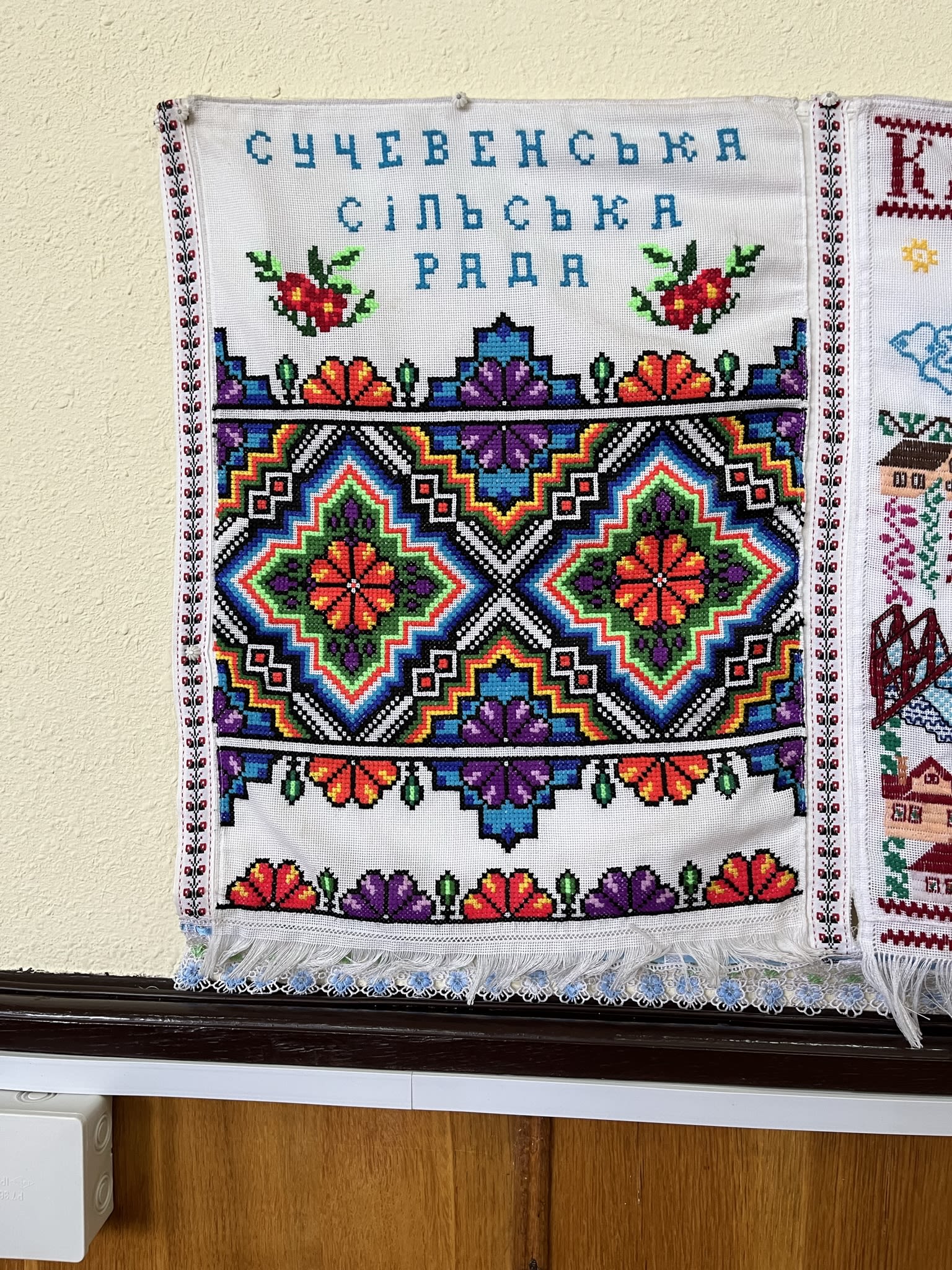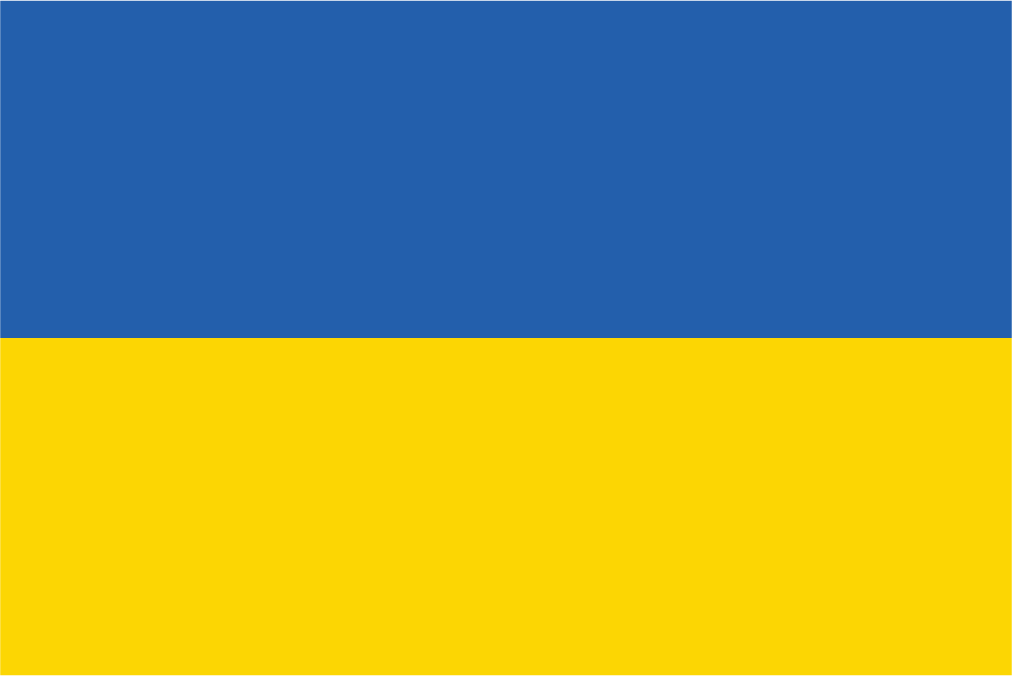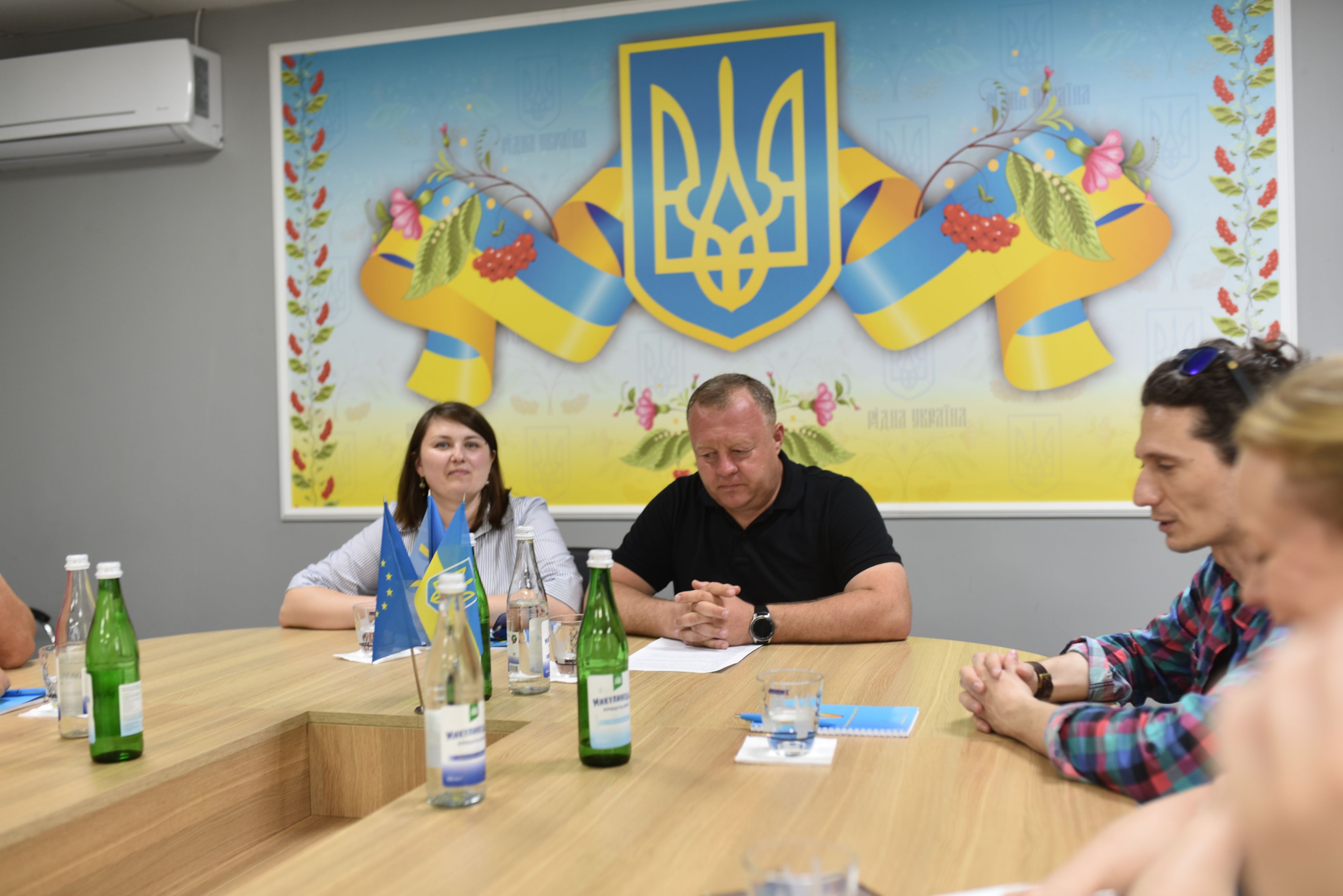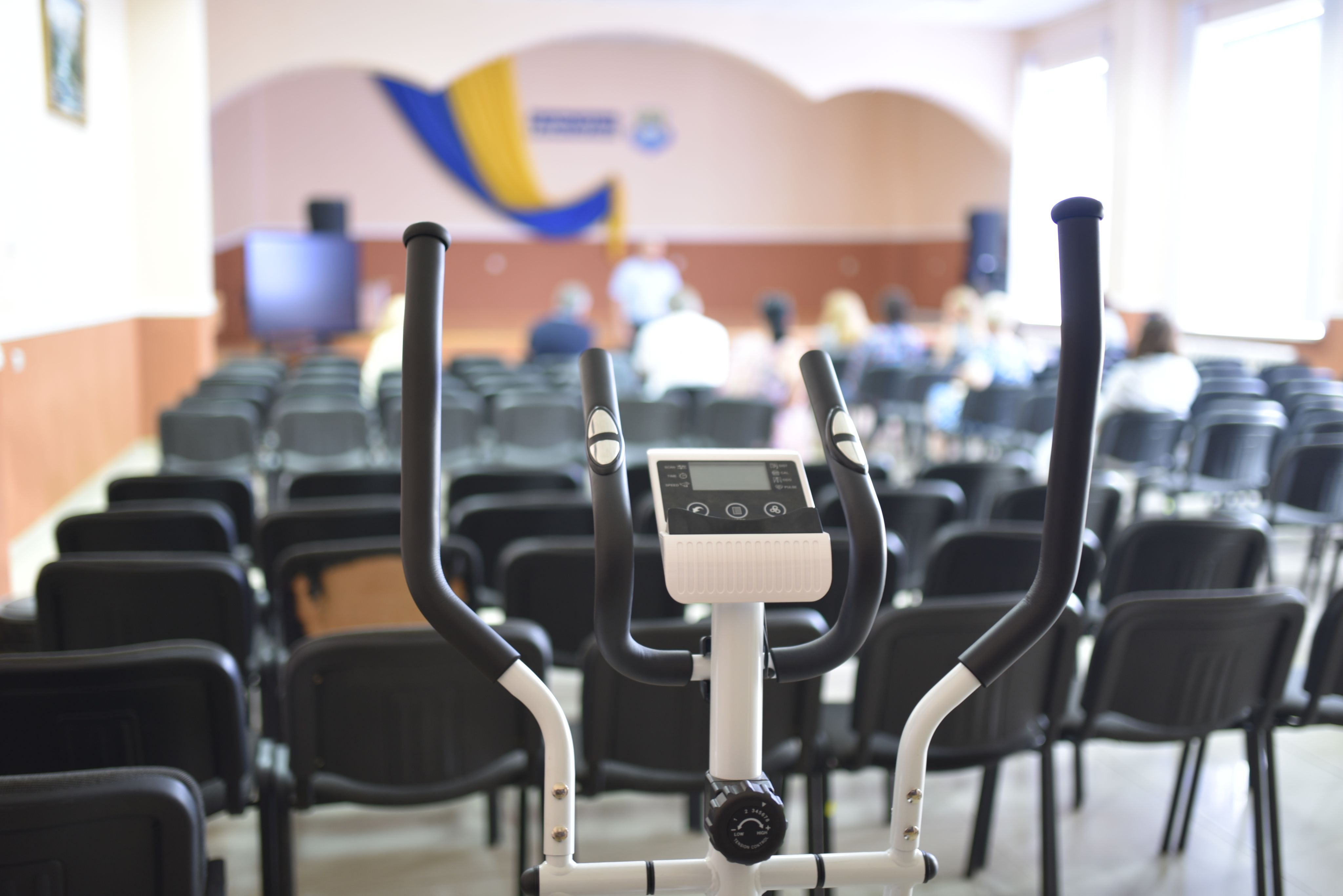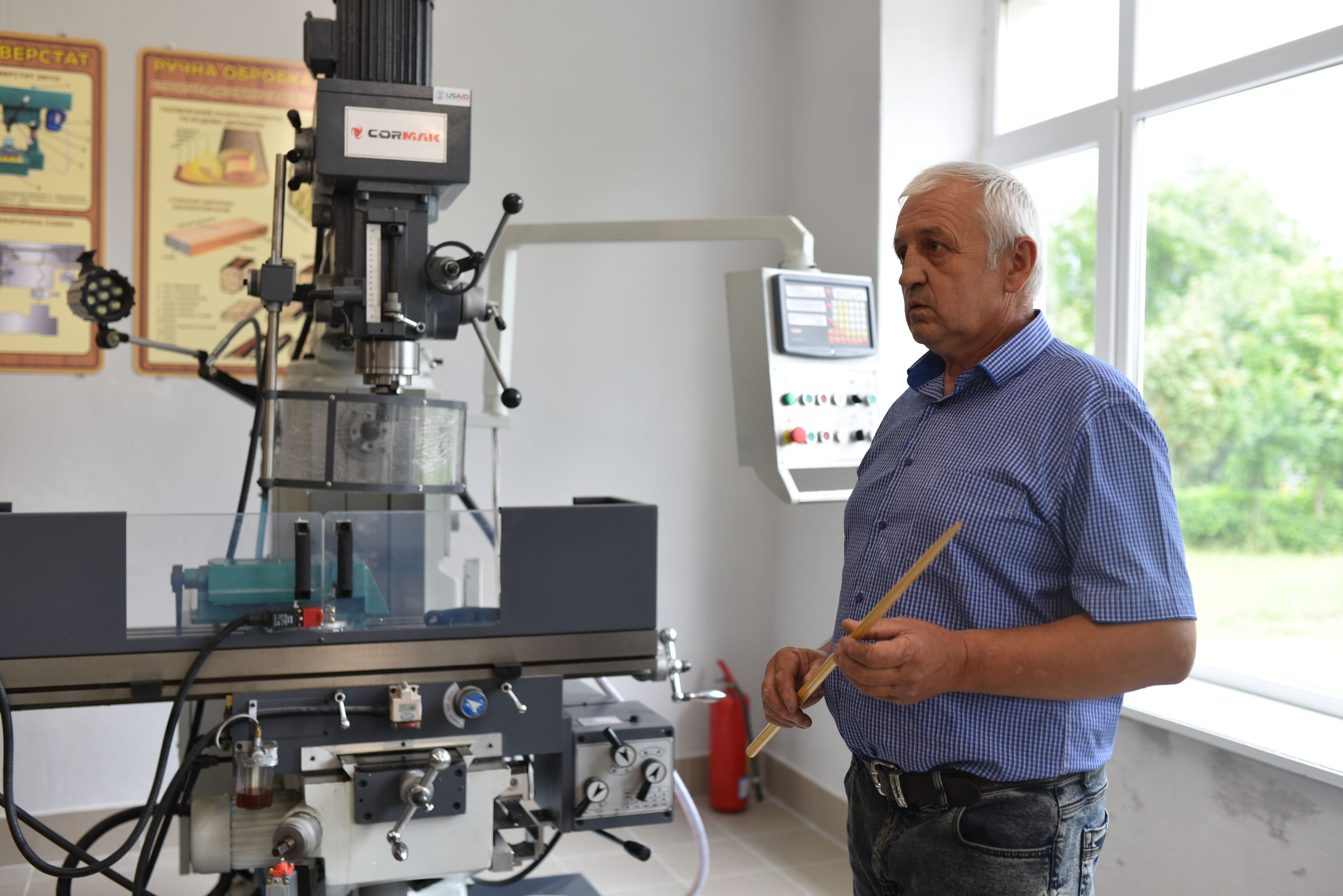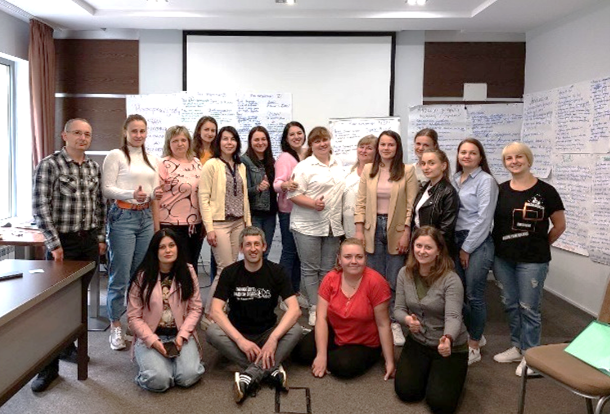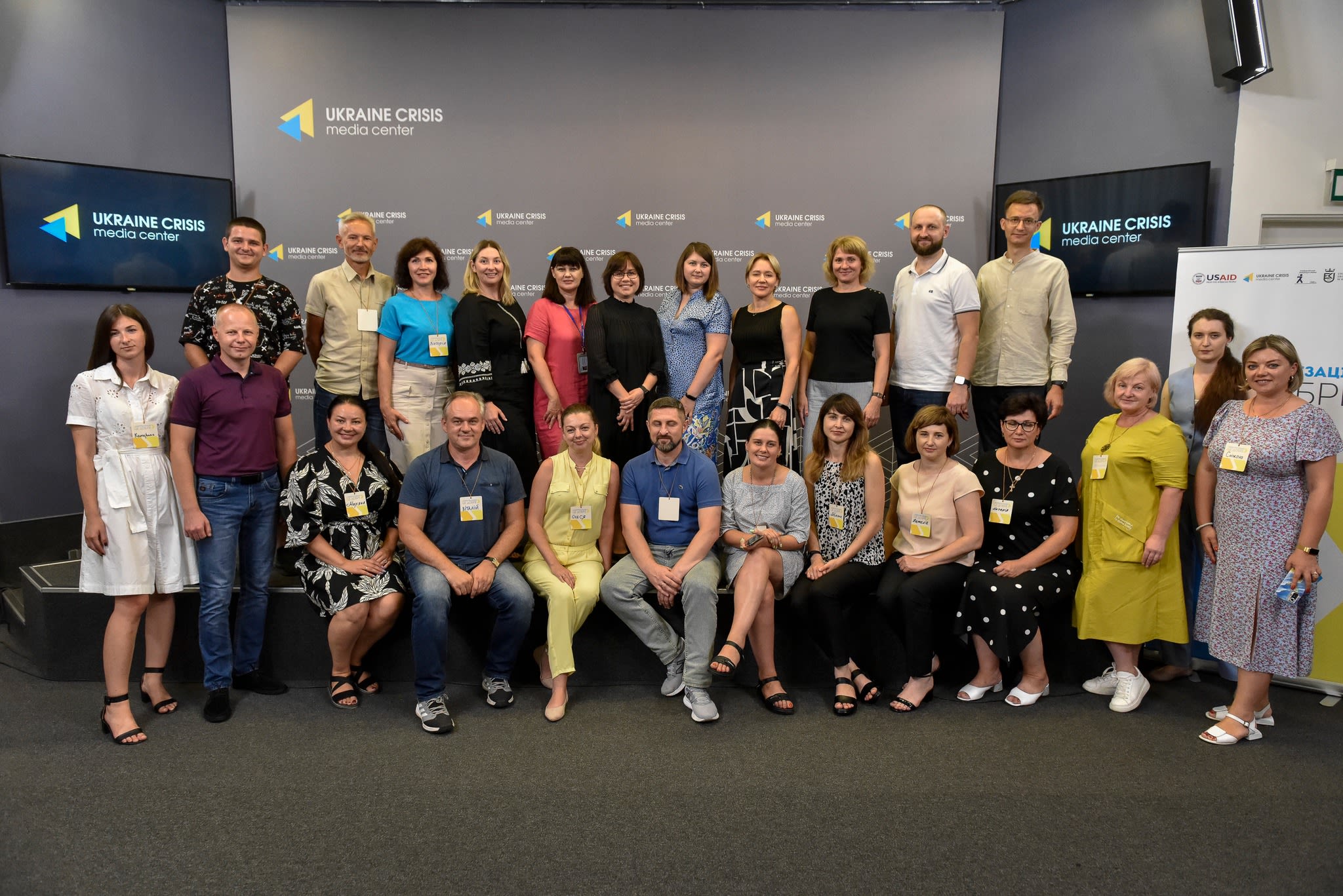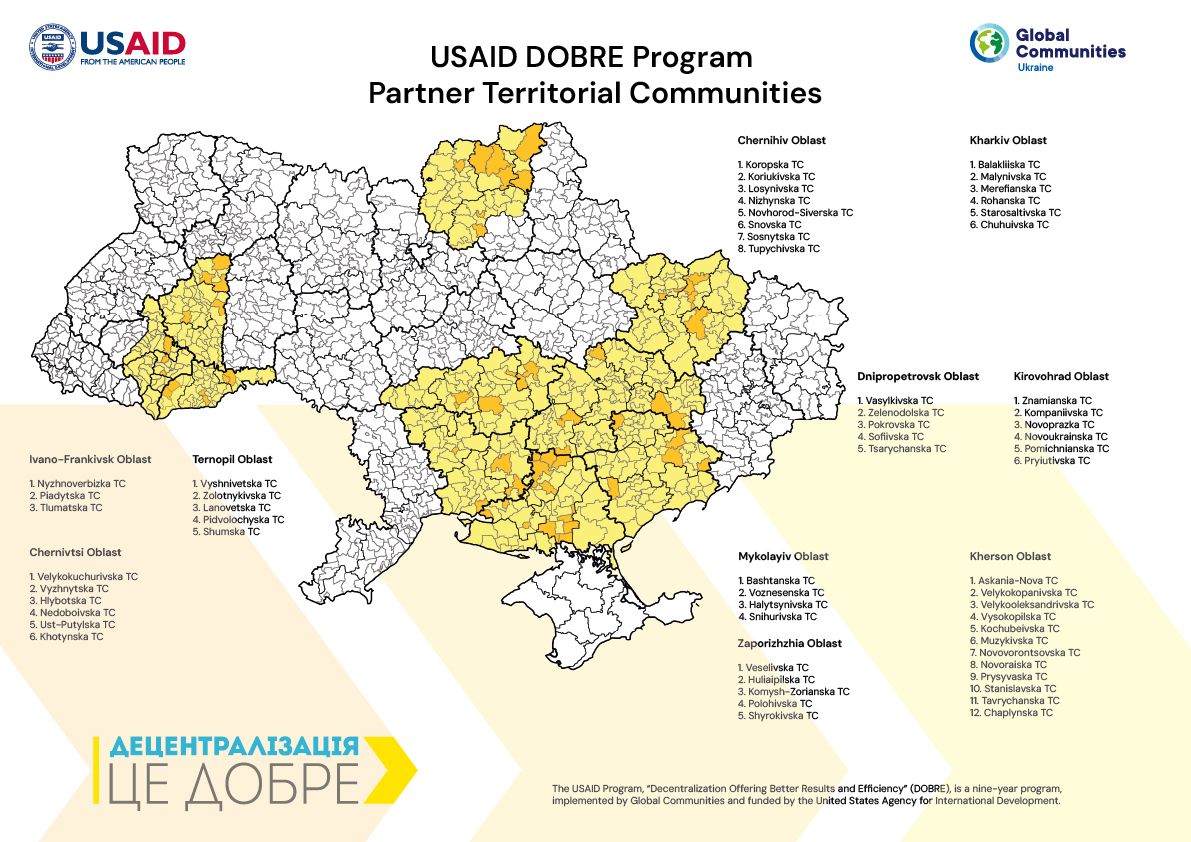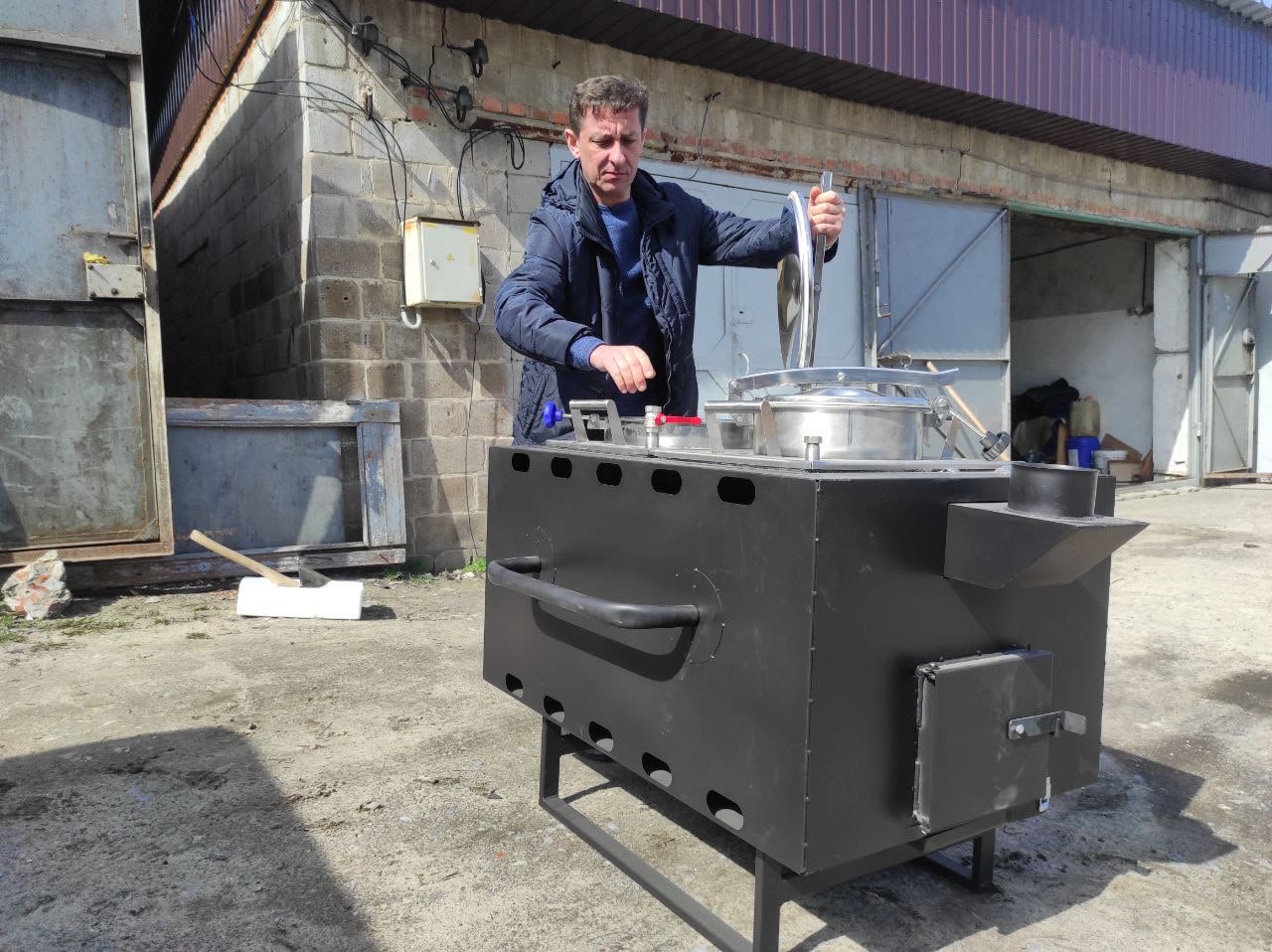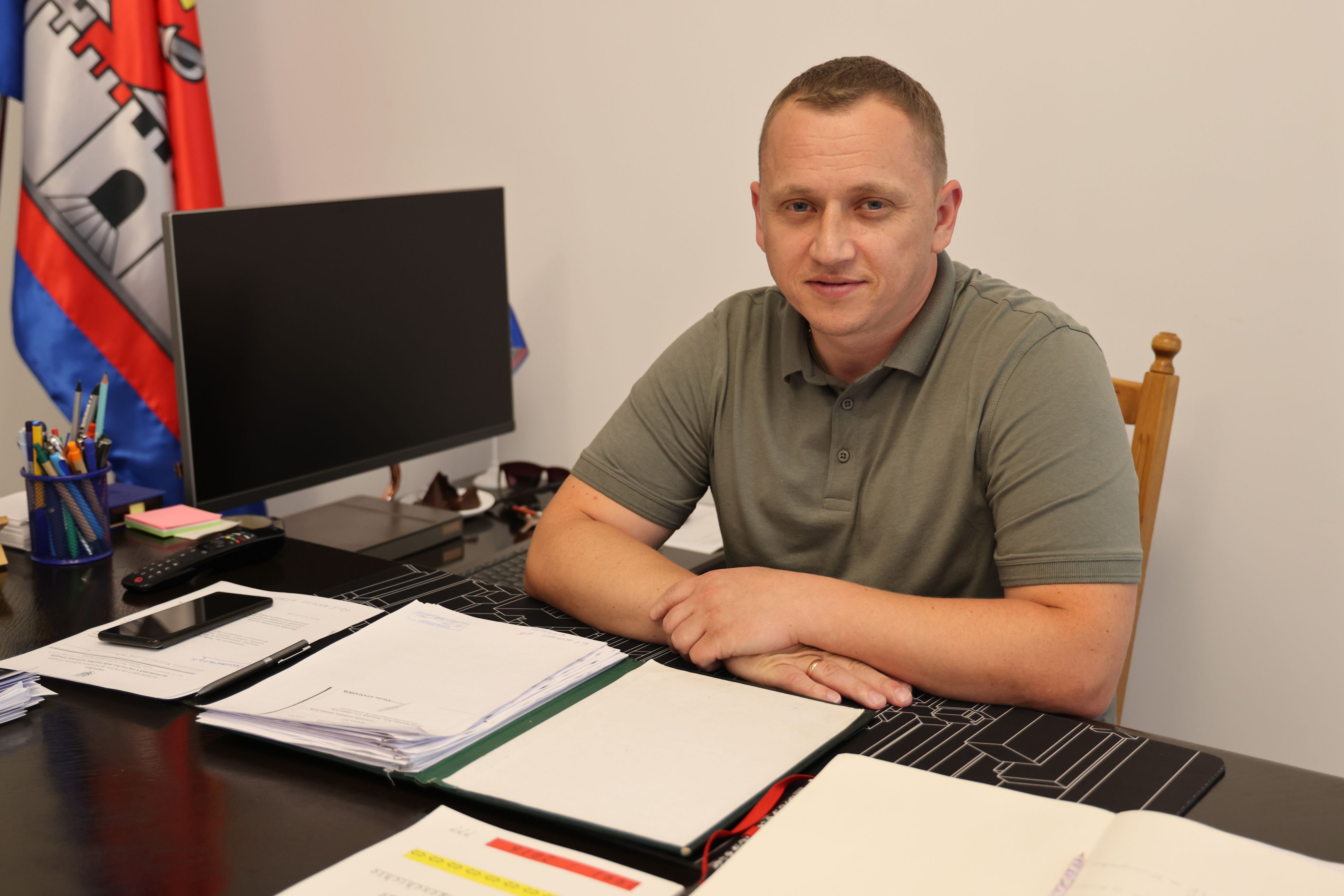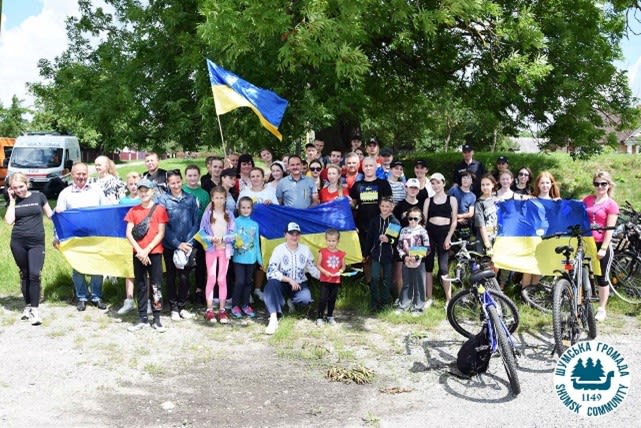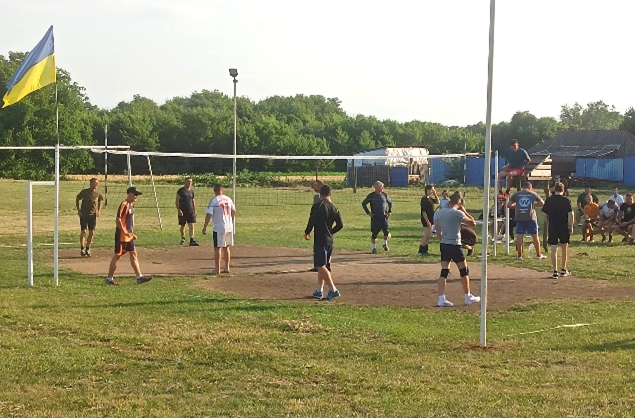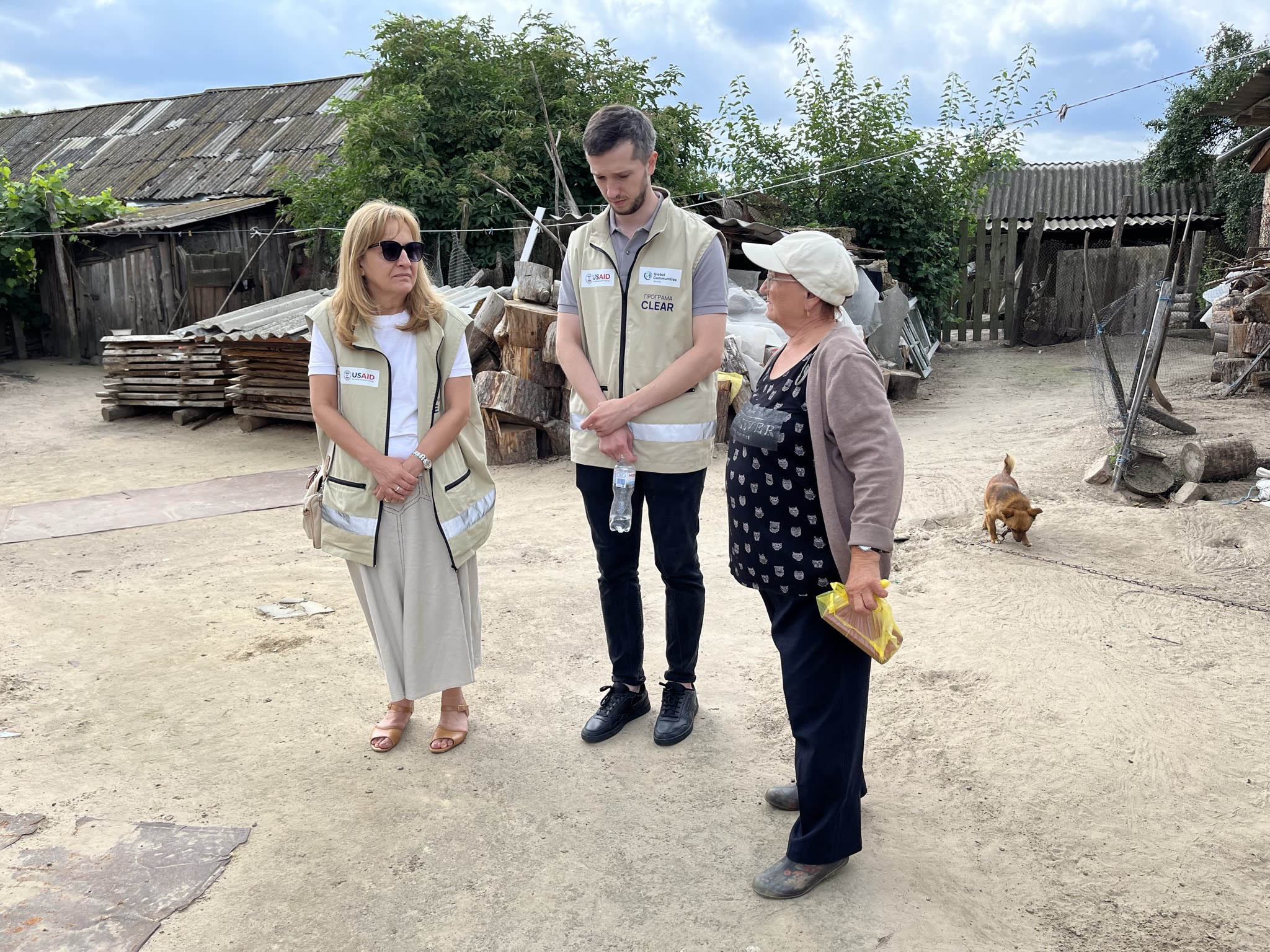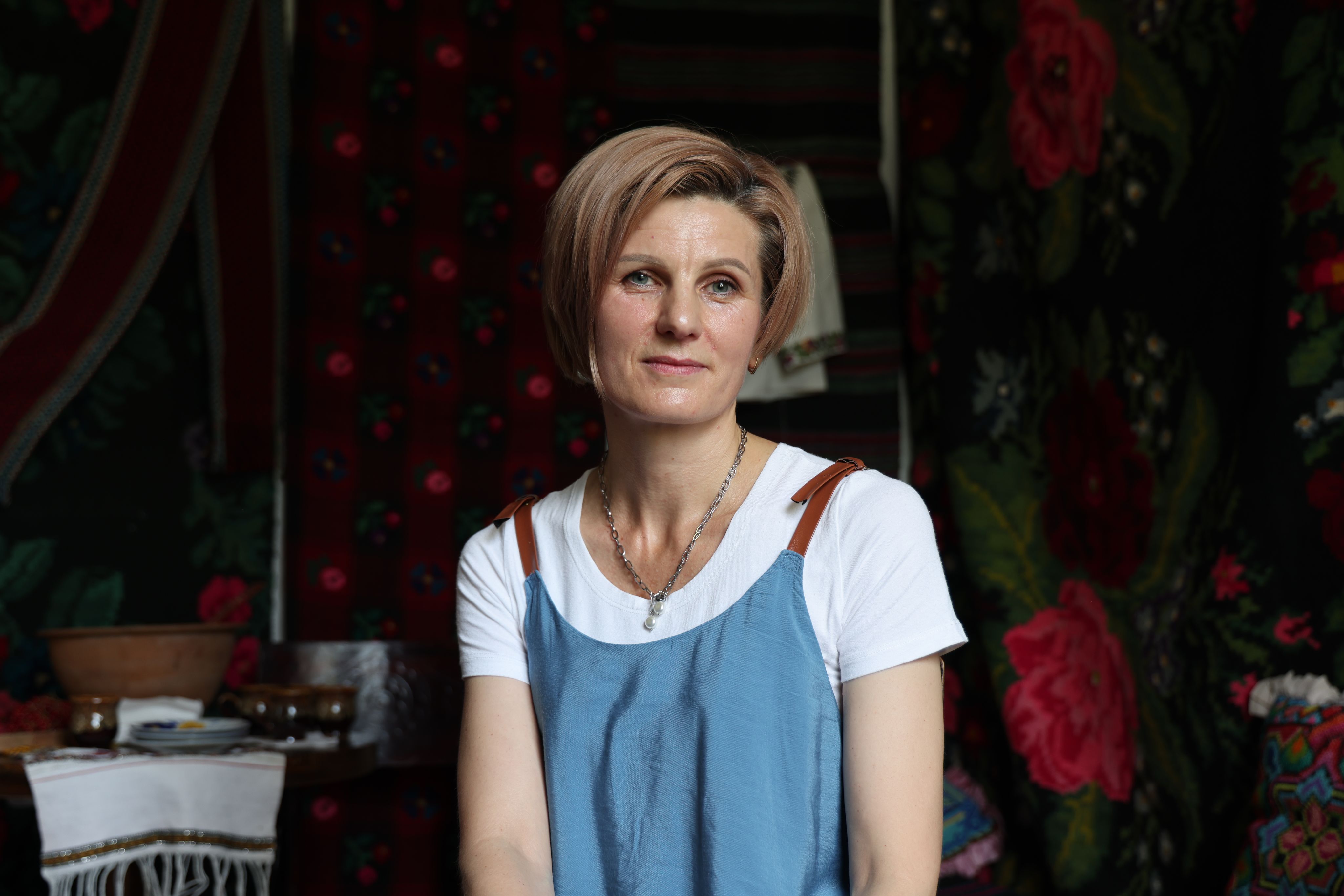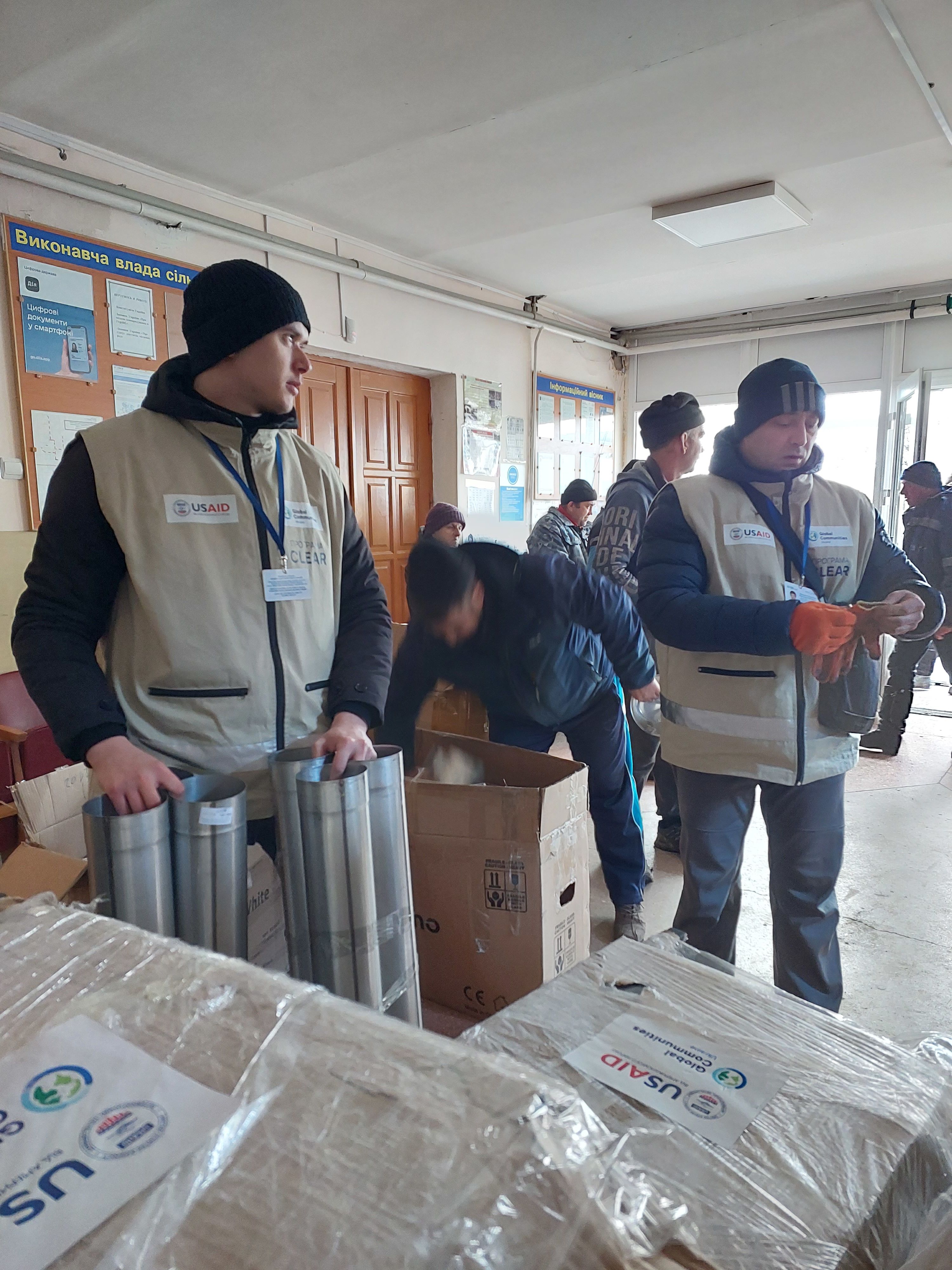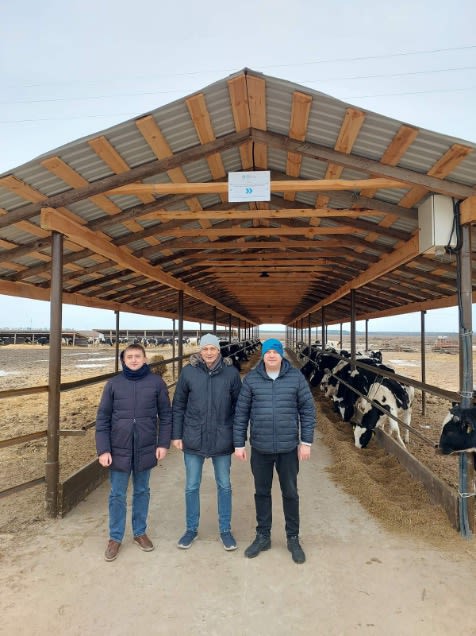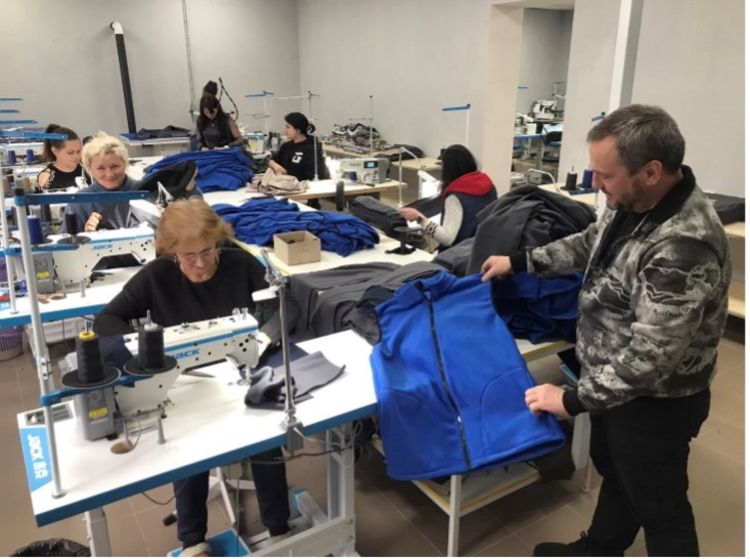Governing in Crisis: Layering Decentralization Assistance and Emergency Response in Ukraine
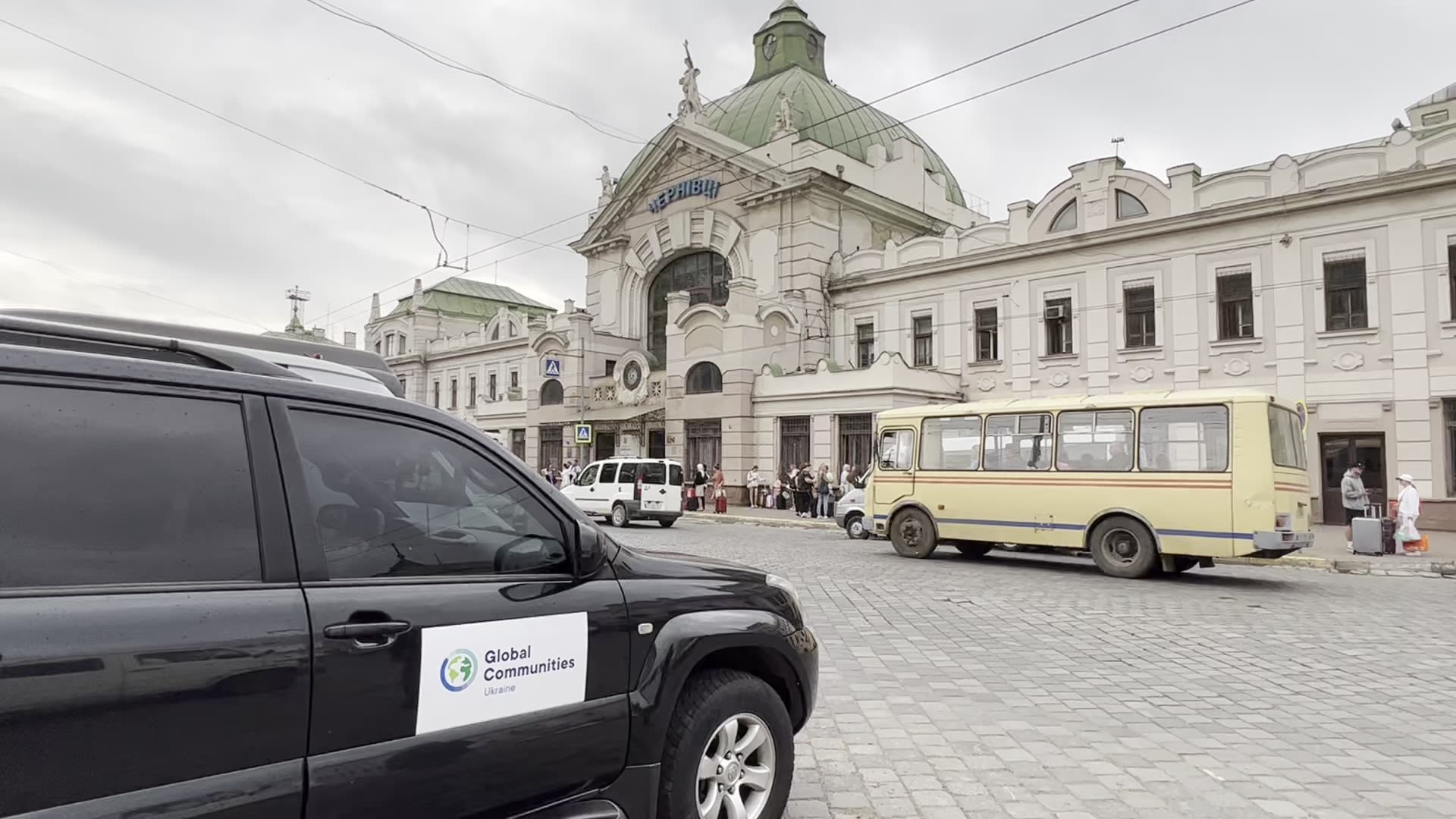
Global Communities implements three projects in Ukraine: DOBRE, CLEAR and PEARL. These projects work at the intersection of humanitarian assistance and sustainable development to support local communities as they cope with the devastating impacts of the war. I am incredibly inspired by the courage and resilience of Ukrainian people. It is an honor and privilege to serve them on their journey to peace and recovery.”
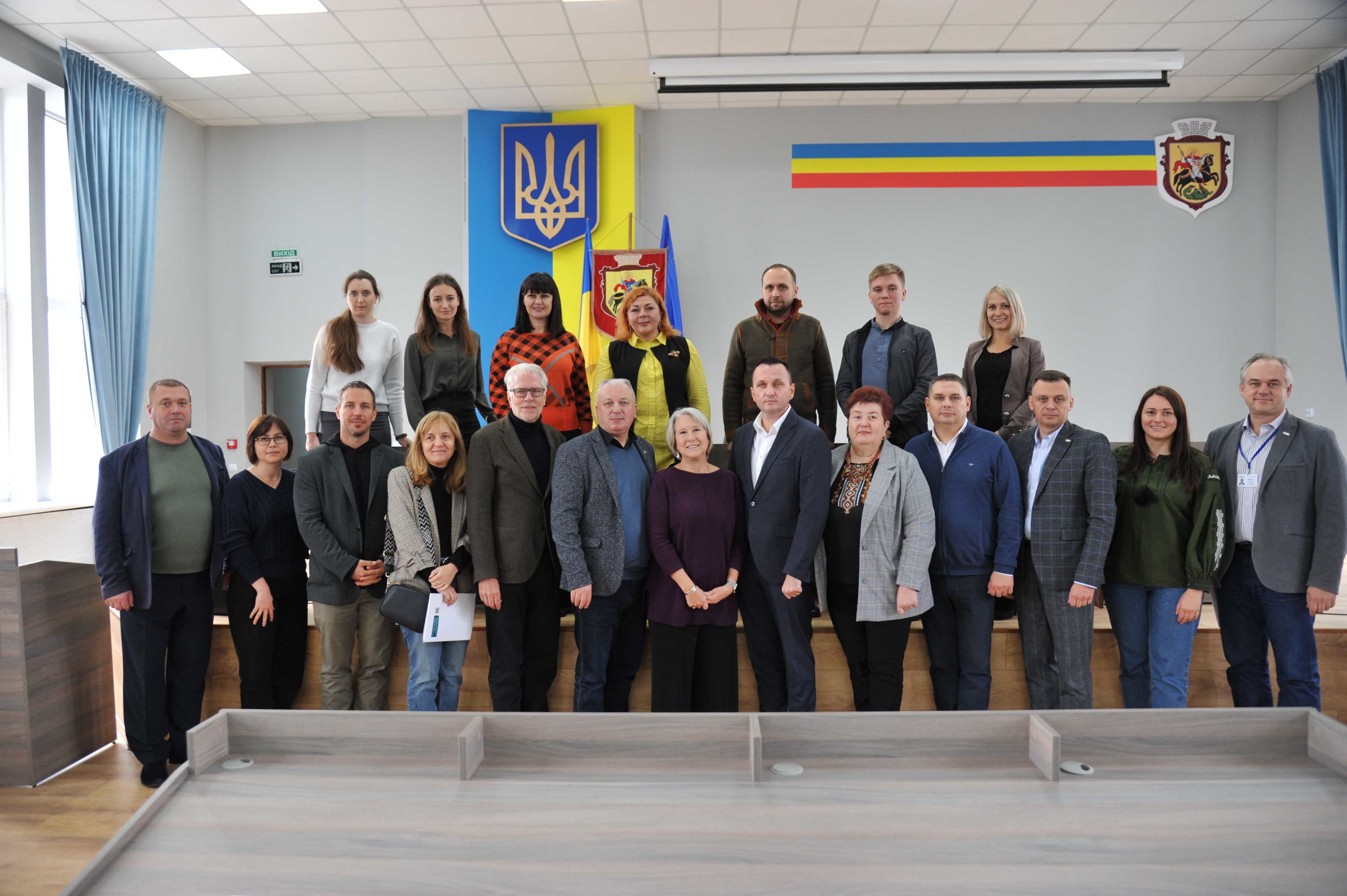
Global Communities in Ukraine
Decentralization Offering Better Results and Efficiency (DOBRE)
Global Communities has had a long presence in Ukraine. Our history dates back to 2016, when we launched the Decentralization Offering Better Results and Efficiency (DOBRE) program, funded by the United States Agency for International Development (USAID).
Global Communities in Ukraine
Rapid Emergency Response
With the onset of Russia’s full-scale invasion in February 2022, DOBRE mobilized its networks to provide rapid emergency response and assist communities in their war recovery efforts.
Global Communities in Ukraine
Community-Led Emergency Action and Response (CLEAR)
Soon after, Global Communities partnered with USAID’s Bureau for Humanitarian Assistance (BHA) to implement the Community-Led Emergency Action and Response (CLEAR) program in two oblasts served by DOBRE, Chernivtsi and Chernihiv.
Global Communities in Ukraine
Piloting Early Recovery and Livelihoods Assistance (PEARL)
We have also initiated the Piloting Early Recovery and Livelihoods Assistance (PEARL) project, financed through our own Strategic Investment Fund. PEARL supports businesses disrupted by the war in two oblasts overlapping with DOBRE and CLEAR.
By layering life-saving humanitarian interventions with long-term development assistance, Global Communities is working with Ukrainian communities to respond to the crisis, set the stage for post-war reconstruction and foster lasting resilience to shocks and stresses.
PART 1
Wind of Change: Ukraine’s Journey to Decentralization
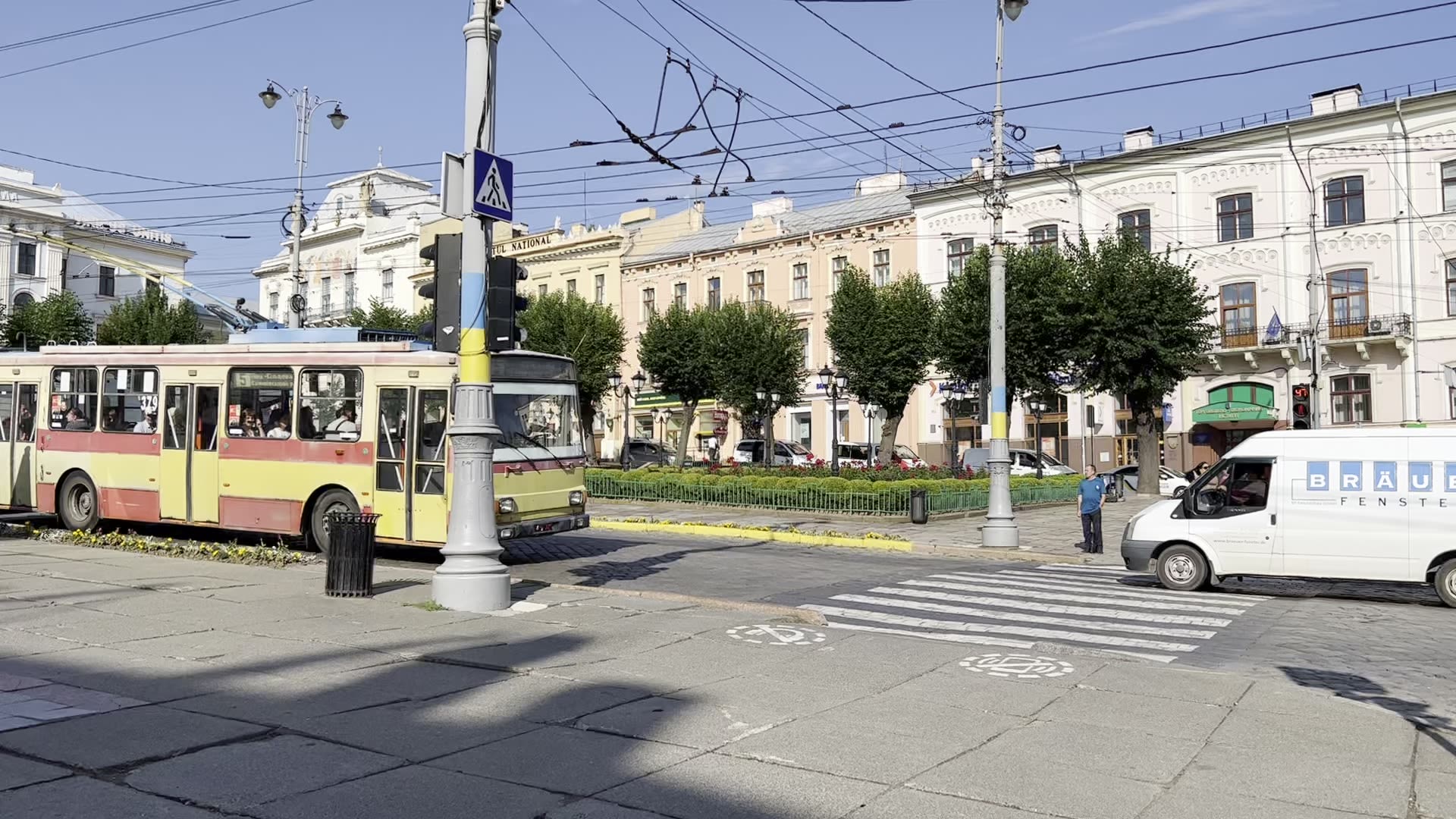
“Decentralization was a major departure from the Soviet legacy of centralized decision-making in Ukraine. It was a real revolution, because it shifted significant resources and power to local communities, while empowering citizens to be more engaged in government affairs.”
- Brian Kemple, DOBRE Chief of Party, Global Communities
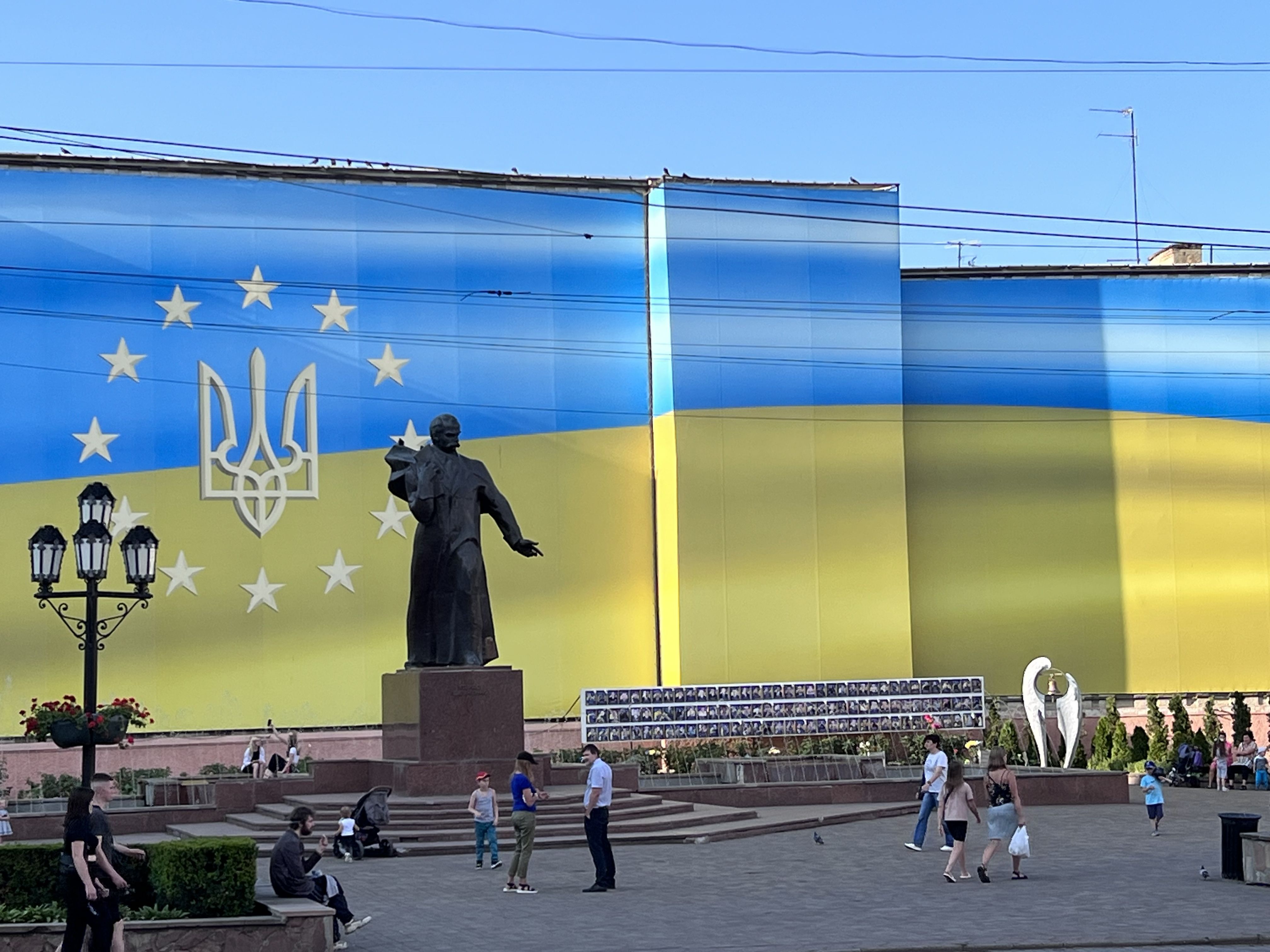
In 1989, when I was 11 years old, Central and Eastern Europe was swept by a dramatic tide of change, leading to the end of the Cold War. I lived in Poland back then. As a small child, I could not fully comprehend the profound impact of the events that unfolded that year. But I will never forget witnessing the communist rule collapsing under the mounting pressure from people exhausted from decades of political oppression and empty shelves. I will also always remember the song “Wind of Change” playing on the radio in years to come. During the course of 1989, Poland, Hungary and other countries of the Eastern Bloc began their democratic transitions, and in 1990, the Soviet republics started declaring their independence. December 1991 marked the official dissolution of the Soviet Union. Earlier that year, on August 24, 1991, Ukraine became an independent nation and embarked on massive political reforms to transition from an authoritarian regime and centrally-planned economy to a democratic and market-oriented system. The key aspect of these reforms was – and continues to be – decentralization.
Decentralization is a complex, messy and long process involving new actors on the sociopolitical scene and stakeholders who have no experience working together. When Ukraine declared independence, its territory was divided into small and unviable administrative units. Local councils had few responsibilities, little power and no capacity to deliver adequate services. On top of unsustainable territorial fragmentation and weak local governance, Ukraine faced significant regional disparities, constant political fighting and the national government’s urge to maintain central control. While fiscal devolution had some elements of success after Ukraine adopted its new Budget Code in 2001, the political devolution had a rocky and steep path. The process did not gain momentum until 2014, when the Revolution of Dignity, or Euromaidan, ousted a pro-Russian president Viktor Yanukovych. Yanukovych had a tight grip on power in the country and attempted to block Ukraine’s closer ties with the European Union. Russia’s illegal annexation of Crimea in 2014 provided another impetus for swift democratic reforms.
Between 2014 and 2021, the Government of Ukraine established a robust decentralization framework, which overhauled the country’s multi-level governance structures. The new framework included an array of reforms aimed to strengthen local democracy and boost local economic development. The key aspect of these reforms is amalgamation.
Before Euromaidan, Ukraine had thousands of small administrative units, including 458 towns, 783 rural and urban settlements, and 10,279 villages. The voluntary amalgamation process, which occurred between 2015 and 2020, led to the creation of 1,045 united territorial communities, known as hromadas.
Today, following further reforms, Ukraine’s official three-tier administrative structure includes 24 oblasts (regions), the Autonomous Republic of Crimea, and two cities with a special status (Kyiv and Sevastopol) (level one); 136 rayons (districts) (level two); and 1,469 hromadas (level three). After the amalgamation, hromadas assumed new responsibilities for public services, such as education and healthcare, and began receiving funding from the national budget to execute their mandates. They can also keep a substantial portion of their local tax revenues. Equipped with more power and resources, hromadas are now a locus of local development efforts in Ukraine.
Ukraine’s decentralization reforms have generated positive impact and an unprecedented degree of international investment. Yet many challenges remain, from unfinished reorganization efforts and tensions between different levels of government to inter-regional inequalities. These challenges are severely exacerbated by the impacts of the war.
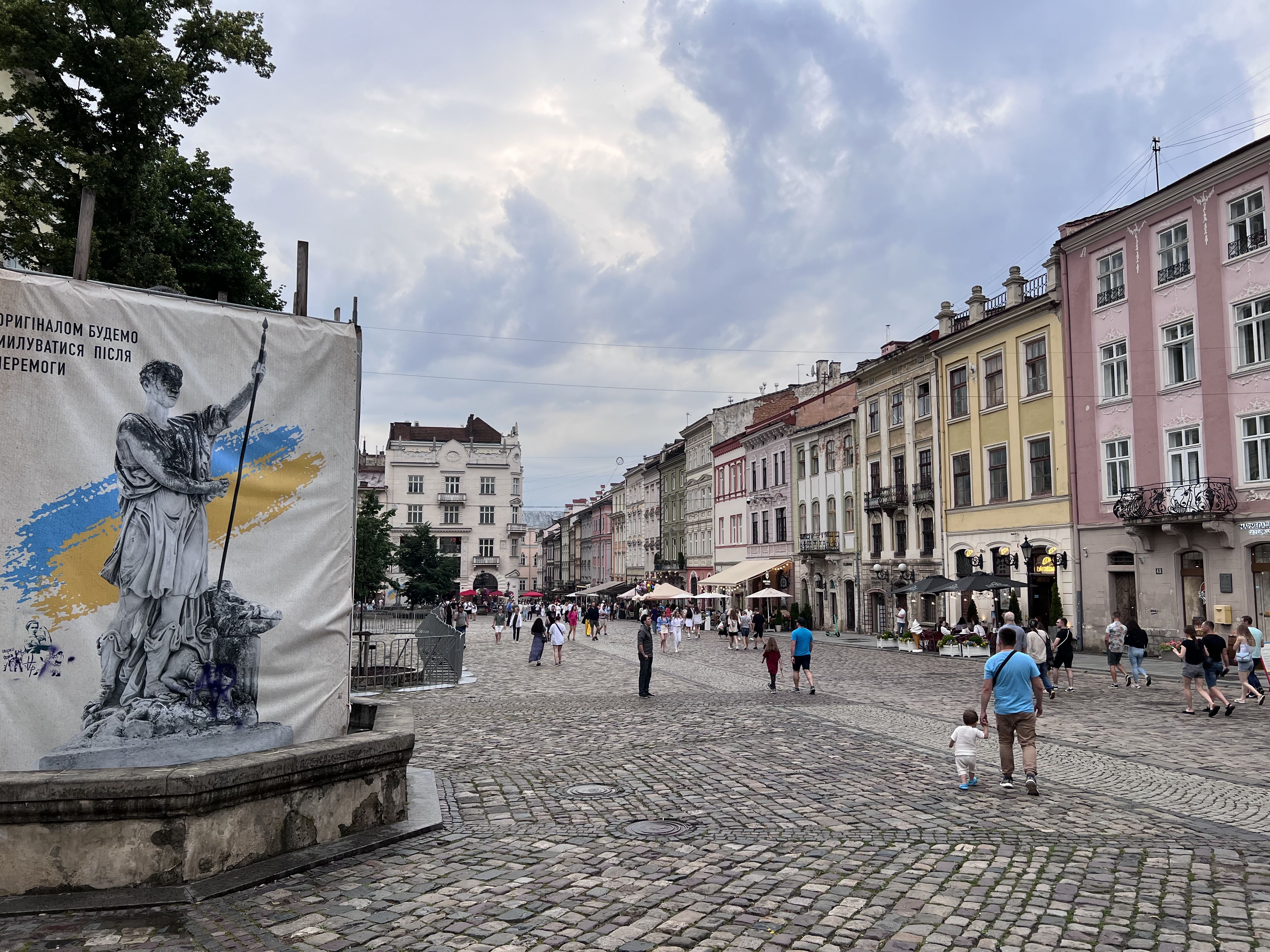
PART 2
DOBRE: Fostering Effective Governance and Civic Engagement in Territorial Communities
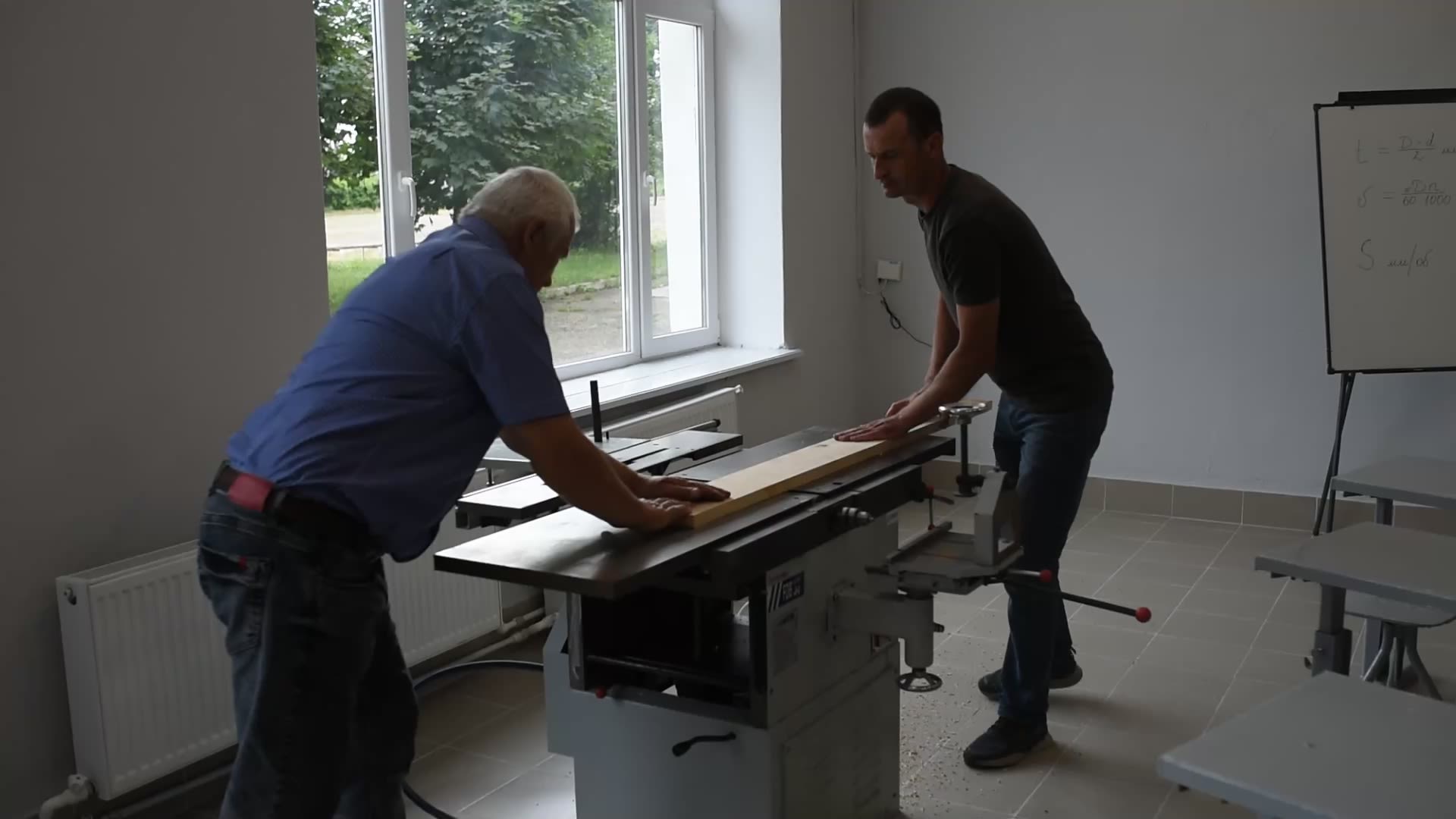
In 2016, USAID partnered with Global Communities to implement DOBRE. DOBRE – which stands for “good” in Ukrainian – was designed to strengthen local governance and promote civic engagement in 100 territorial communities across 10 oblasts. While Global Communities has adapted the program to address the realities of the war, its core objectives remain the same. Through technical and material assistance, DOBRE works to strengthen the capacity of local governments, improve the delivery of public services, foster local economic development, and increase citizens’ involvement in community affairs. The key idea is to ensure that communities govern themselves effectively and transparently, and that citizens meaningfully participate in decision-making affecting their lives.
One of the most important aspects of decentralization is engaging citizens in local governance and building their trust in the new government system. Since its inception, DOBRE has used participatory research and strategic planning models to support newly established communities in creating their own local development solutions. … One of the mayors we worked with remarked how amazed he was by the ideas brought to the table by local residents. He had never communicated with his people so openly before.”
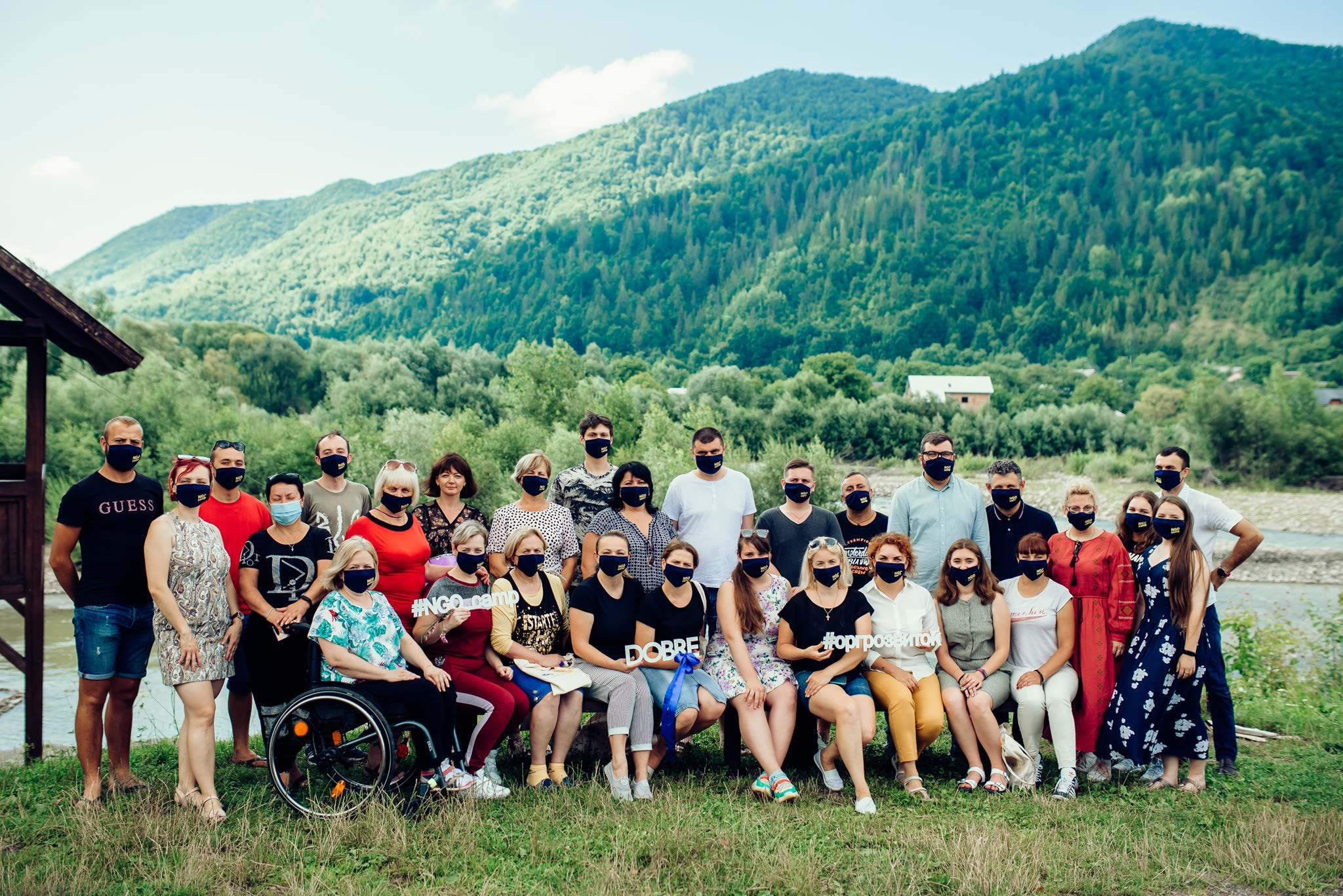
DOBRE's Approaches in a Nutshell
Strengthening the Capacity of Local Governments to Meet Community Needs
- Promoting the principles of good governance
- Facilitating participatory research and strategic planning processes
- Training public servants
- Advocating for gender- and youth-responsive policies
- Improving local budgeting and financial management systems
- Enhancing the management of public resources
- Increasing local governments’ ability to respond to citizens’ needs and priorities
Improving the Delivery of Public Services
- Facilitating the development of Service Delivery Improvement Plans (SDIPs)
- Enhancing the quality of municipal services and customer satisfaction
- Investing in local infrastructure, from roads and sidewalks to schools and sporting facilities
Stimulating Local Economic Development (LED)
- Facilitating LED steering committees composed of local government officials and businesses
- Developing community economic profiles
- Supporting LED actions plans, projects and local businesses
- Financing economic infrastructure, such as community kitchens and coworking spaces
Fostering Civic Engagement
- Raising public awareness about decentralization reforms and civic engagement opportunities
- Facilitating citizens’ participation in policy advocacy, decision-making and government oversight
- Strengthening the capacity of local civil society and community-based organizations
- Cultivating positive youth development through youth councils and youth-led organizations
- Promoting women’s participation and leadership in governance structures
DOBRE in Numbers
- USD 107 million in funding over 9 years
- 10 oblasts, 127 communities
- 80+ current local and international partners
DOBRE’s Strategic Partnerships
DOBRE’s success lies in the power of strategic partnerships with local communities and a consortium of organizations led by Global Communities, including the Ukrainian Crisis Media Center (UCMC) and two Polish institutions, the Jerzy Regulski Foundation in Support of Local Democracy (FSLD) and the Malopolska School of Public Administration at the Krakow University of Economics (MSAP/UEK). Global Communities chose to partner with FSLD and MSAP very intentionally. Poland, which borders Ukraine, was one of the first countries in the post-Soviet era to begin decentralization reforms with the adoption of the Local Government Act in 1990. These reforms were considered a model for other post-communist countries in the region. Under DOBRE, FSLD guides hromadas in strategic planning while MSAP trains public servants and facilitates post-graduate certificate programs for local government officials. UCMC provides visibility on DOBRE’s work, strengthens public awareness of the benefits and challenges brought by decentralization, and trains stakeholders in effective communication.
PART 3
Pivoting in Times of War: Strengthening Local Governance for Crisis Resilience & Recovery
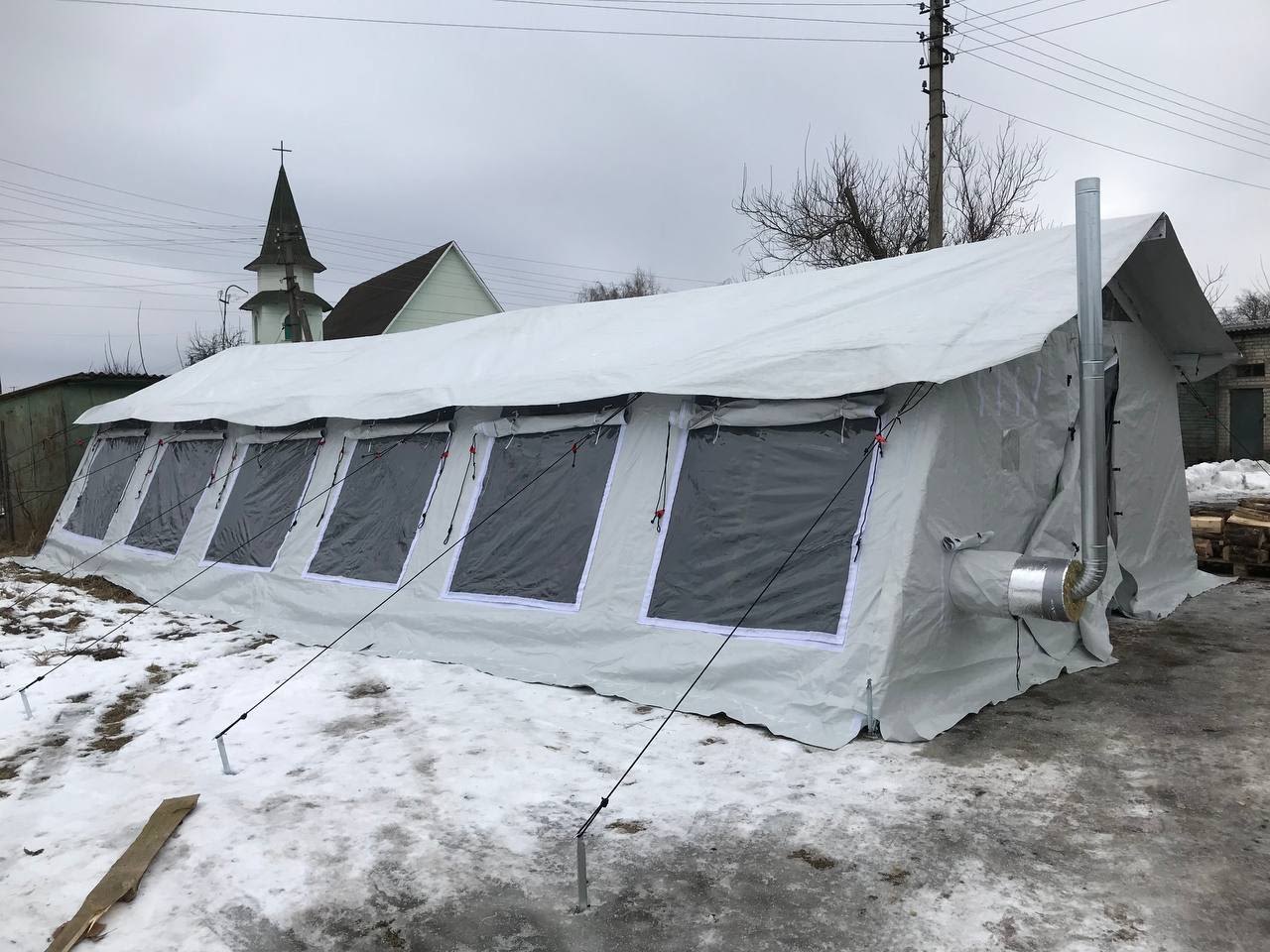
Between 2016 and 2022, DOBRE worked with its partner communities to strengthen the capacities of local governments. Currently, our priority is to assist communities in overcoming the consequences of the war and help them in restoring and rebuilding their territories.”
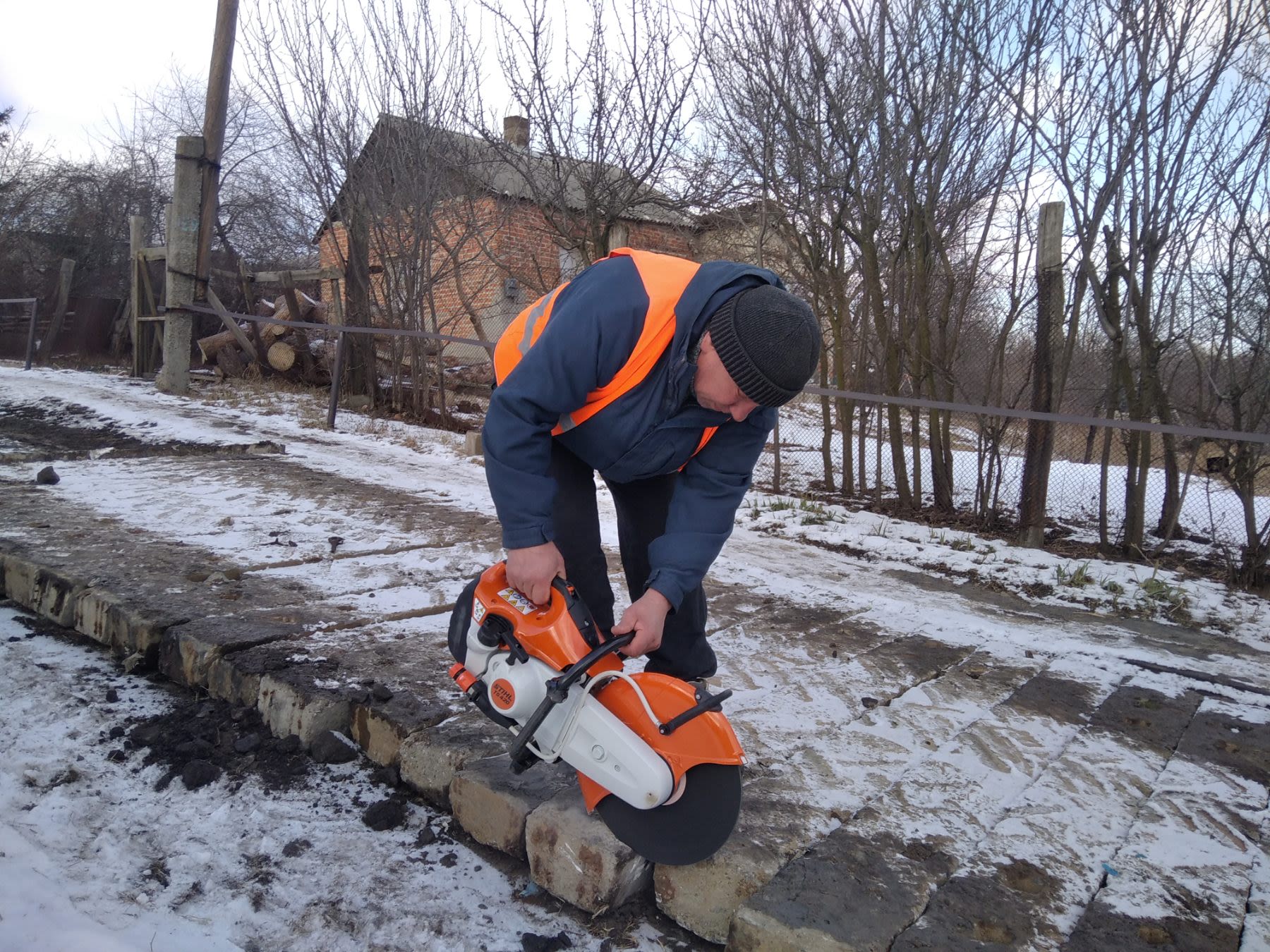
Russia’s full-scale invasion of Ukraine has changed the trajectory of the country’s socioeconomic development and growth. Global Communities knew that DOBRE needed to change too to respond to the crisis effectively. Between May and August 2022, DOBRE mobilized its resources and deep ties with local communities to provide rapid emergency response to more than 14,000 people displaced by the war from eastern to western Ukraine. Soon after, in the fall of 2022, USAID awarded DOBRE additional funding and a three-year extension. With this modification, DOBRE entered a new phase of implementation focused on assisting 67 communities across 10 oblasts in overcoming the consequences of the war.
Ramping Up Emergency Response
Our long-standing presence in Ukraine meant that we had an established, trusted network of government and civil society partners that we could quickly mobilize to pivot to emergency response. We immediately capitalized on our DOBRE program to support the recovery of government services in war-affected communities.”
With additional funding from USAID, DOBRE ramped up its emergency response, both in eastern oblasts, which are heavily affected by direct hostilities, and in western oblasts, which host a large influx of displaced people. Our assistance consists primarily of material support, ranging from water tanks and equipment needed to repair war-damaged infrastructure to beds, generators and mobile kitchens. In addition, DOBRE helps equip centers for displaced people and medical clinics, including those serving new moms, children and service members wounded on the frontlines.
Andriy Dranchak, Mayor, Khotyn, Chernivtsi Oblast
Andriy Dranchak, Mayor, Khotyn, Chernivtsi Oblast
Strengthening Crisis Governance
We expect funds from the state budget and international programs to be directed to central and eastern parts of Ukraine. But western communities, like ours, also need support for development projects.”
Ukrainian hromadas are relatively young administrative units with growing but not mature capacity to govern openly and efficiently in a stable context. Yet they have been struck by a debilitating crisis with no prior experience governing in times of war. DOBRE is poised to support them in their efforts to recover, rebuild and continue on the path of sustainable development. These efforts include a myriad of conflict-sensitive approaches to decentralization, including the creation of Comprehensive Territorial Recovery Programs in 18 communities across four oblasts.
- FRDL is working with hromadas to revise their pre-war strategic plans, develop recovery programs and optimize public services to meet citizens’ conflict-related needs.
- MSAP is training local government officials on the fundamentals of crisis management, including leadership, risk mitigation and management of public services in humanitarian settings.
- UCMC is educating the public about how communities can function successfully during the war.
In addition to supporting new LED, SDIP and youth projects in partner communities, DOBRE is helping hromadas to prepare for post-war reconstruction, with training topics ranging from spatial planning to European Union accession. Despite the shelling, displacement and dire humanitarian situation, Ukrainian communities are determined to continue their long-term development and modernization efforts.
Promoting Social Cohesion
Many people moved to the Chernivtsi region—which is mostly rural—from big cities, and now live in small villages, which do not have adequate infrastructure to accommodate them. Local governments are trying to help, but they have limited resources. In addition, there are significant cultural differences between western and eastern Ukraine, which is perceived to be more ‘Russian.’ We see many lingering beliefs and stereotypes about eastern Ukraine here. This creates misunderstandings and tensions.”
In addition to interrupted public services and damaged infrastructure, local authorities must now grapple with the displacement of people and businesses, mostly from the east and south to the west of Ukraine. More than 5 million people are estimated to be displaced internally and in need of support. Displacement affects host communities too. No matter how warm and welcoming they might be toward fellow citizens fleeing the frontlines, the influx of displaced people puts an enormous economic pressure on western hromadas and changes their social fabric. Competition for jobs and public resources, coupled with cultural differences, inadvertently cause social tensions, adding to the suffering and hardship. Recognizing these challenges, DOBRE works with local governments and civil society organizations (CSOs) to foster social cohesion, resilience and peace through workshops, community events and social dialogues.
PART 4
CLEAR & PEARL: Supporting War-Affected People and Businesses
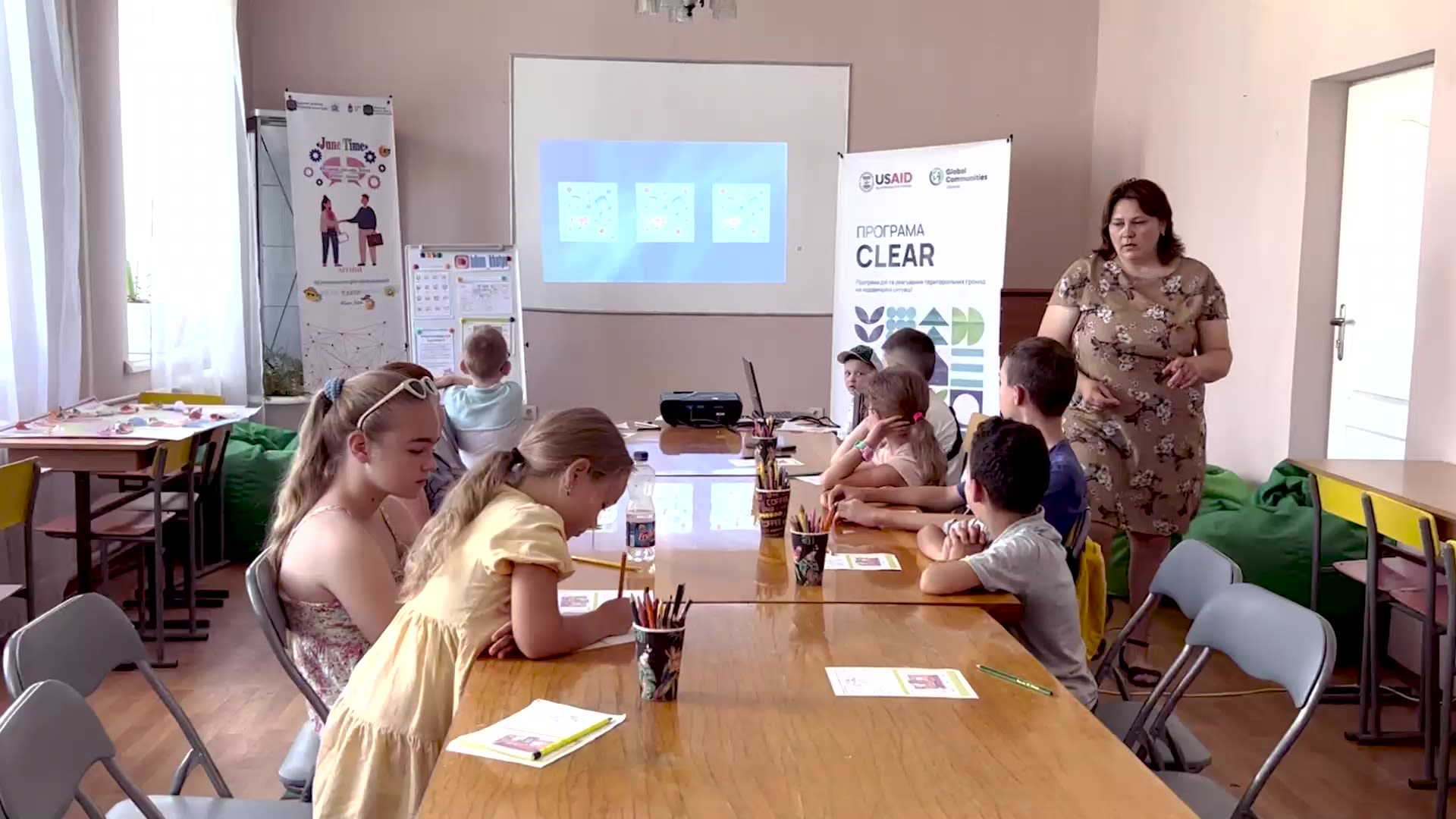
The CLEAR program brings together localization and humanitarian response. It is critical to empower local actors with skills and knowledge to continue their lifesaving efforts. CLEAR prioritizes smaller and remote communities to secure better humanitarian access for vulnerable populations.”
The brutal nature of the war in Ukraine has a profound impact on individuals, families and communities. Since the conflict erupted, nearly 22,000 civilians lost their lives and more than 17 million people need humanitarian assistance. To ease this irreparable harm, Global Communities implements a BHA-funded program called CLEAR. CLEAR addresses urgent needs of war-affected people in two oblasts overlapping with DOBRE: Chernihiv, which borders Russia and suffers from daily shelling, and Chernivtsi, which hosts more than 140,000 displaced people. CLEAR provides emergency response in three areas: protection, shelter & settlements, and water, sanitation and hygiene (WASH). From home repairs and winterization cash assistance to WASH kits and psychosocial support, CLEAR offers life-saving emergency relief while helping adults and children alike to heal from the trauma of the war.
Oksana Mykhailenko, Global Communities’ Protection and Gender-Based Violence Prevention Manager, shares powerful insights from the CLEAR program in Ukraine, highlighting how the team supports rebuilding communities with protection front and center.
When I first started the psychosocial support groups, the participants’ postures were so heavy. They were carrying such a heavy burden. Now, they are completely different. They smile. They notice the important little things in life. They realize that it is possible to be happy even under the current conditions. … These groups help people adapt, make new friends and feel supported. ... The most important thing is that they find unity and understanding here. … This is really therapeutic and inspiring.”
Maya Mazur, Khotyn Library Director & CLEAR Psychosocial Facilitator, Chernivtsi Oblast
Maya Mazur, Khotyn Library Director & CLEAR Psychosocial Facilitator, Chernivtsi Oblast
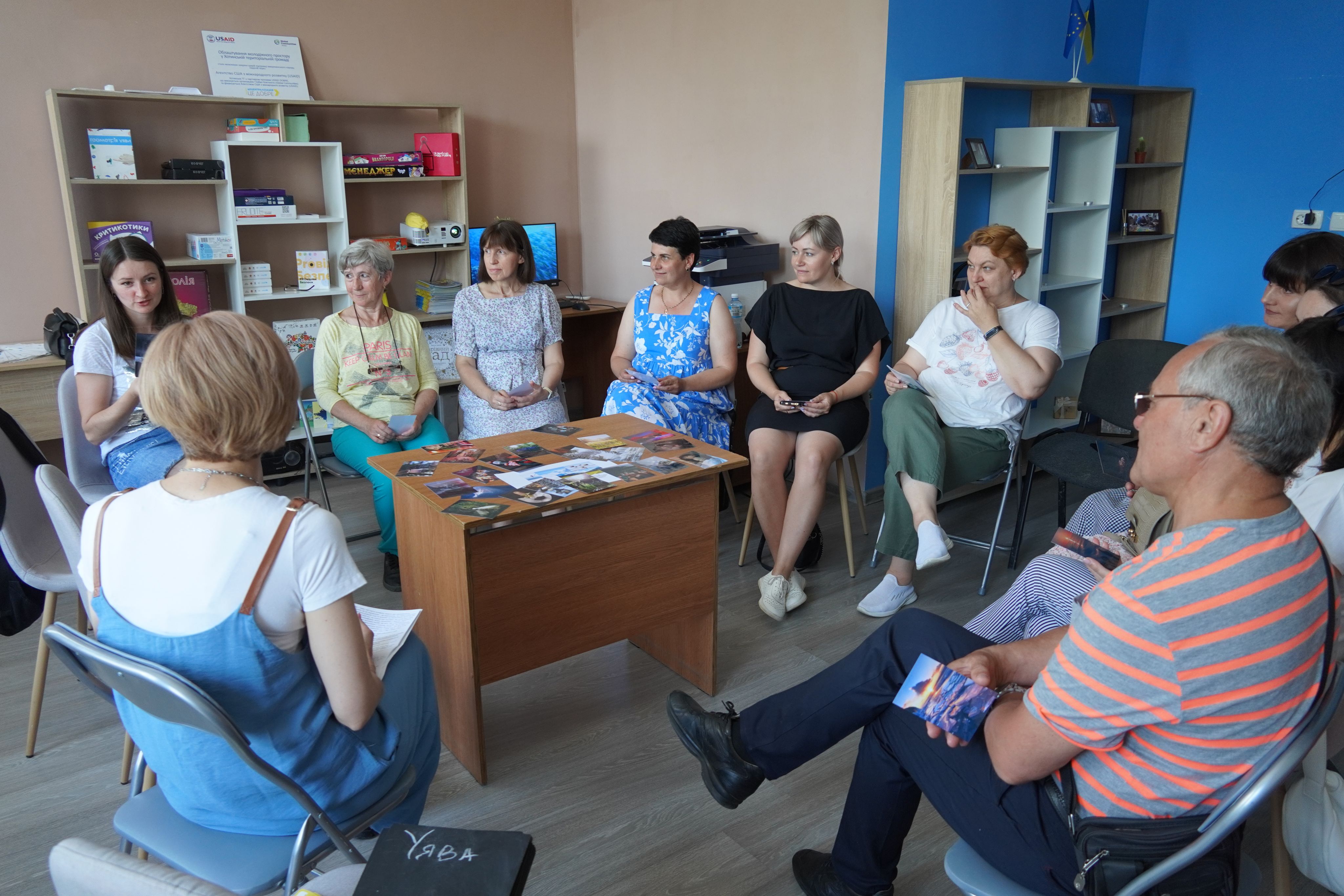
CLEAR in Numbers
- USD 15 million in funding
- 2 oblasts, 23 communities
- 13 local partner organizations
- 22,000+ recipients of emergency assistance
- Nearly 13,000 individuals supported with shelter and WASH solutions
- Winterization cash assistance provided to 2,650 households
- Rental assistance disbursed to 430 households
- 14,500 WASH kits distributed
- 5,600 dignity kits delivered to women
- 4,500 recreational kits provided to children
- 400 portable stoves delivered in 5 communities
- 300 households assisted with minor repairs over the coming months
Caring for War-Affected Children
Ukrainian children have now endured more than 18 months of violence, trauma and displacement. Their homes and schools have been destroyed and families torn apart. Many have been killed or wounded, and others are forced to sleep in shelters as air raid sirens sound across the country. The United Nations Children’s Fund (UNICEF) estimates that 1.5 million children are at risk of depression, post-traumatic stress disorder and other mental health issues. In response, CLEAR partners engage children in art therapy classes, learn and play activities, and community events to support their healing and recovery.
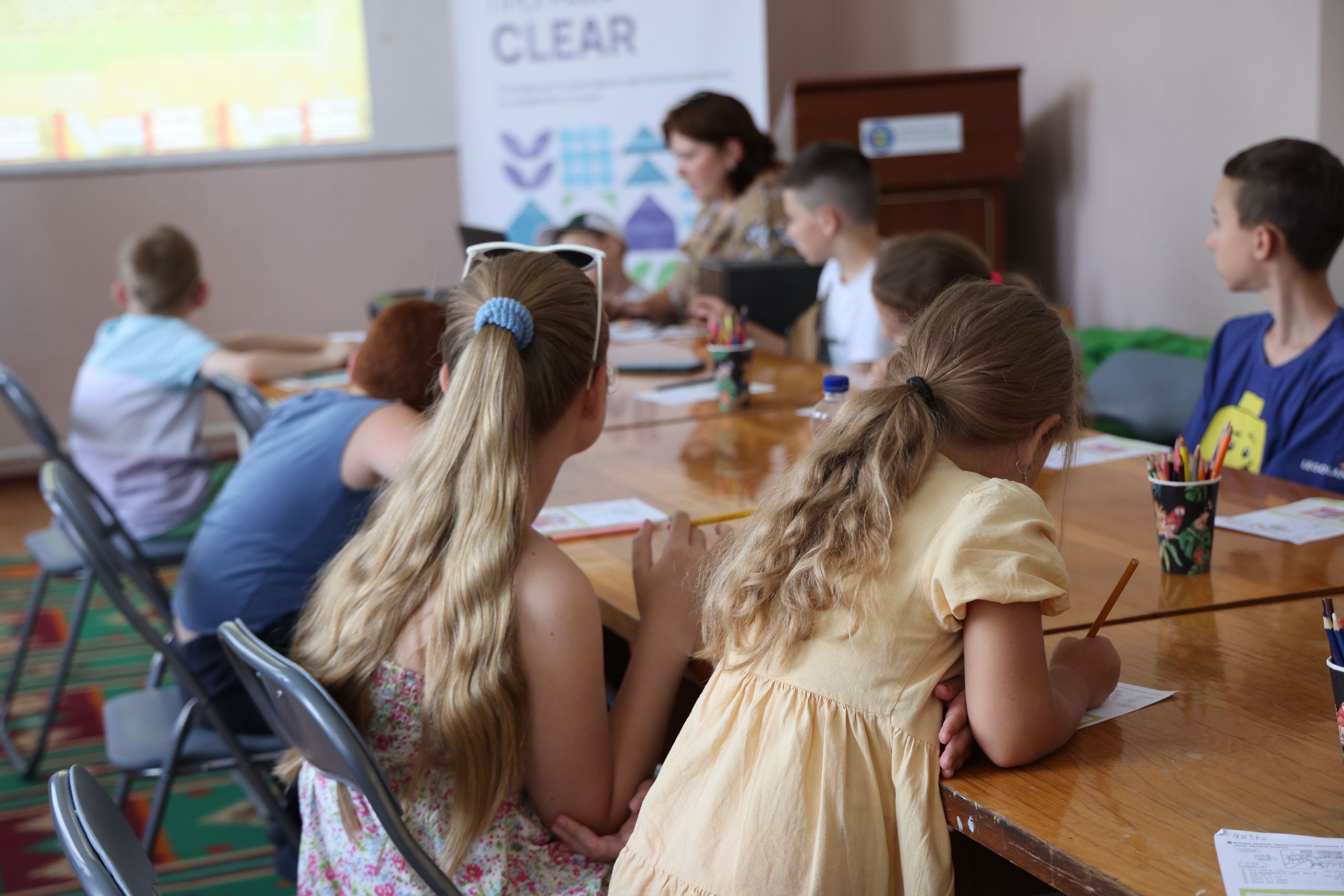
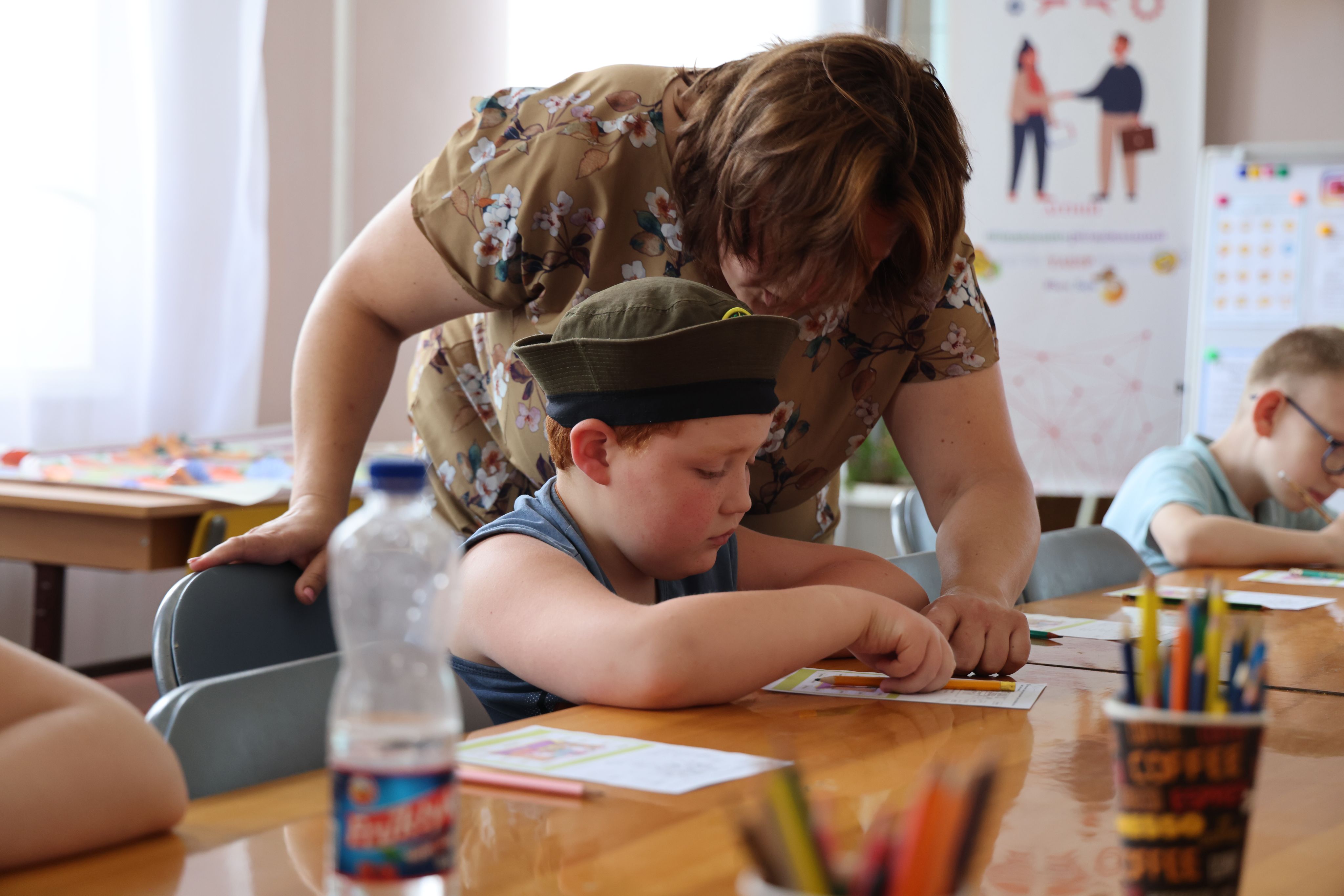
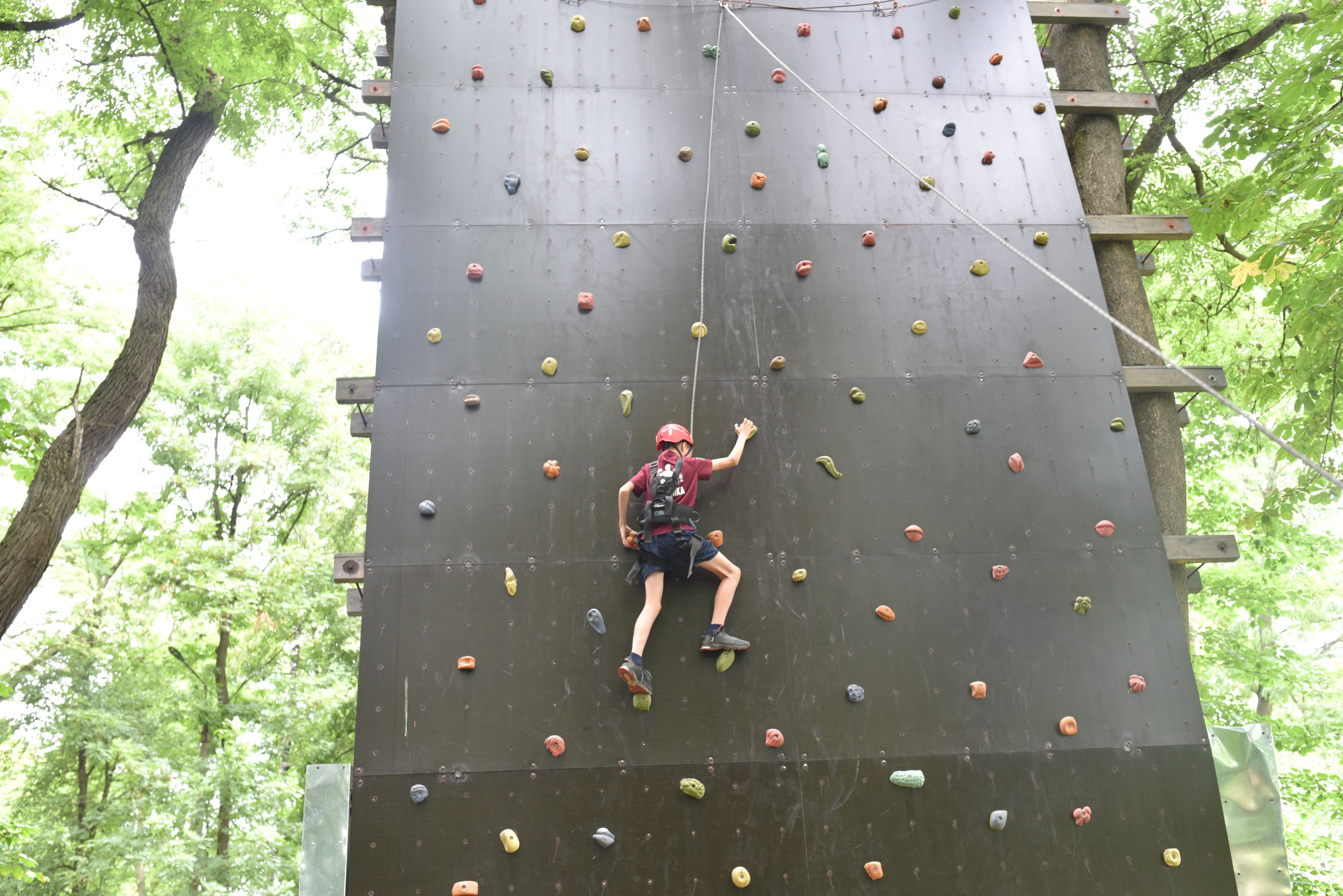
The war has also led to a devastating economic crisis in Ukraine, which was already in distress as a result of the COVID-19 pandemic. Small and medium enterprises (SMEs), which form the backbone of the Ukrainian economy, suffered immense losses. It is estimated that between February and December 2022, SMEs earned 43 percent less and employed 22 percent fewer people than before the invasion. Many businesses have been destroyed, suspended operations or relocated to safer areas. Businesses that have survived face severe challenges, including increased operational costs and limited ability to show creditworthiness. “As a result, SMEs in Ukraine have an unmet financial gap of $29 billion per year and 87 percent are in need of funding,” external data shows.
Since its inception, DOBRE has supported Ukrainian businesses and entrepreneurs through its LED component. For example, we have purchased equipment for the Dobri Gazdy Cooperative – a cheese manufacturer in the Hlyboka community – and for the metal and wood processing workshop in the Velykyi Kuchuriv community. I had the pleasure of visiting both spaces during my trip.
In 2023, Global Communities used its own Strategic Investment Fund to launch PEARL, which works with DOBRE’s LED experts to offer financial and technical assistance to businesses disrupted by the war, especially those owned by veterans, women and displaced people. The pilot focuses on restoring livelihoods and spurring economic growth in Chernihiv and Chernivtsi, supporting entrepreneurship in diverse sectors, from farming and food production to arts, health and technology.
PEARL in Numbers
- USD 600,000+ in funding
- Cash assistance grants ranging from USD 5,000 to 25,000
- 43 small businesses supported
- 40 new jobs created
- 10 new businesses established
Ukrainian people have demonstrated unprecedented heroism and perseverance in their efforts to break away from the Soviet legacy of excessively centralized government and to defend their country in the face of Russian aggression. Their journey to peace and prosperity continues, and Global Communities is honored and humbled to support them along the way.
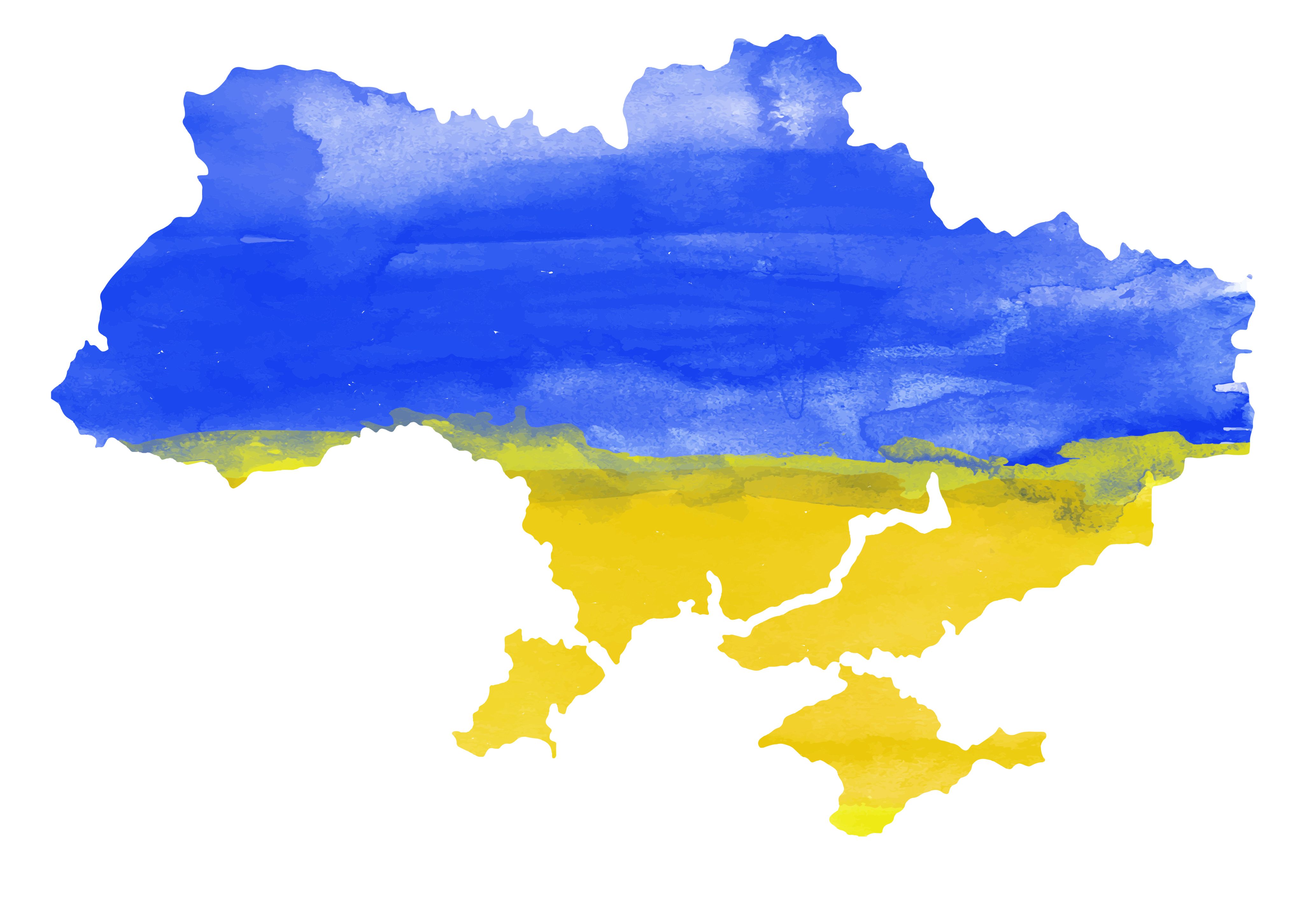

At a time when disasters and disruptions are becoming more common and catastrophic, Global Communities, together with our local partners, equips communities with the training, tools and resources they need to recover from crises and build long-term resilience in the face of constant change.
From prevention and adaptation to positive transformation, we focus on solutions that center local voices and expand opportunities for growth, leadership and advancement.



